SHORTLISTS

NTU’s ongoing shortlists can be viewed here. All positions related to the shortlists can be found under Project vacancies. For those interested in subsequent opportunities, please upload your CV to our Expert Database.

EU Technical Cooperation to MAIL in support of Agribusiness Development in
Afghanistan 2020/S 034-078773Southern Neighbourhood
Capacity Building
03-09-2020
We are happy to announce that NTU International in cooperation with Agriconsulting Europe S.A. (AESA), Società Italiana di Monitoraggio (SIM) and AGRER S.A.– N.V. is shortlisted for the EU funded project in Afghanistan within the Agribusiness sector.
The overall objective of the project is:
- To increase agricultural sustainable production and productivity;
- To improve competitiveness of the agri-food sector in local and international markets;
- To enhance enabling environment for sustainable and private-sector led agriculture and value chain development;
- To increase aid-effectivness in agricultural sector and across the agricultural value chains as well as increase overall coordination between agriculture-related programmes.
Budget: EUR 3.000.000
The intended start date: December 15. 2020
Period of implementation: 36 months
Project vacancies related to this shortlist
KE2: Institutional/ Capacity Development expert
KE3: Agricultural Policy Adviser
Non-Key Expert Positions
NKE1 Private sector development Expert
NKE2 PFM Expert
NKE3 HR/Capacity Development/Change management Expert
NKE4 Monitoring & Evaluation Expert
NKE5 Communication and Legal Expert
NKE6 Planting Material and Seed Certification expert
NKE7 Animal Husbandry Policy Development Expert
NKE8 Agricultural Statistics and Market information expert
NKE9 Head of Advisory Committee
NKE10 Veterinary Field Units (VFUs) development Expert
NKE11 Plant Health Service units development Expert
NKE12 Adaptive & Basic Research expert (Perennial Horticulture)
NKE13 Plant Bio-Technology expert
The purpose of this contract is:
- To provide technical assistance to the Ministry of Agriculture, Irrigation and Livestock (MAIL) of the GoA to improve its capacity for sustainable development of the agriculture and value chains overall.
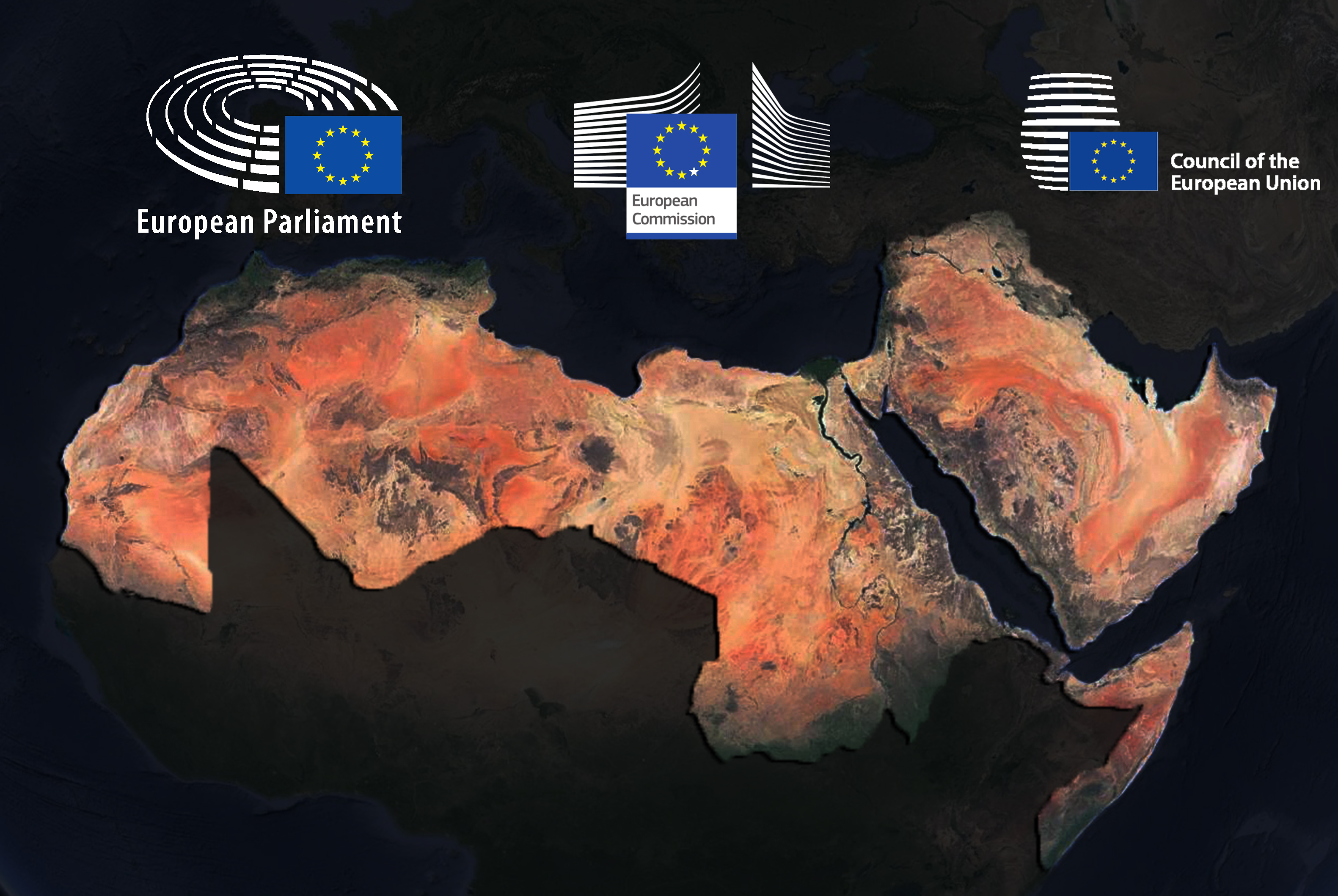
EU Neighbourhood Communication Programme (2020-2024) Lot 2: EU Regional Communication Programme for the Southern Neighbourhood (Algeria, Egypt, Israel, Jordan, Lebanon, Libya, Morocco, Palestine, Syria, Tunisia) EuropeAid/140654/DH/SER/MULTI
Southern Neighbourhood
Capacity Building
11-08-2020
The general objective of this Programme is to contribute to the improvement of public perception and attitudes towards the EU and to the development of a more receptive environment for European values and principles in Neighbourhood partner countries, by delivering and fostering a more tailored and strategic approach in communicating about the impacts of the ENP across the two partner regions. The Programme complements and supports the communication work of the Delegations in the countries and benefits from the close collaboration with the communication teams in DG NEAR and the EEAS StratCom Task Forces. It is designed to reach 'soft centre' audiences – seeking to shift neutral attitudes to positive ones – across all of the countries concerned, including territories and breakaway regions.
Budget: EUR 5.000.000
The intended start date: January 2021
Period of implementation: 48 months
Project vacancies related to this shortlist
Team leader and strategic communication expert
The purpose of this contract is:
- To raise awareness and improve understanding of the benefits and results for citizens of the ENP in the Southern and Eastern partner countries through facts and human-interest stories about the EU and its actions, made available in local languages and through appropriate dissemination channels.
- To stimulate a positive public debate among the target audiences about the EU and the partnership with the EU, in particular by building a strong network of multipliers of young age and by working with the local media with a view to maximising outreach to the general public.
- To measure the support to and monitor the public perception of the EU in the partner countries;
- To contribute to addressing issues related to disinformation, including by raising awareness across the two partner regions.
- To create and maintain momentum and demand in society for transformational reforms (including but not limited to: accountable and transparent governance, rule of law, anti-corruption, judiciary)
- To build associations between the reform process and tangible improvements in the daily lives of citizens.

Support to the Global Covenant of Mayors for Climate and Energy in Asia. Japan; China; Korea; South East Asia; South Asia
Asia
Climate and Energy
11-08-2020
The overall objective is to develop, monitor and lead climate and sustainable energy action and diplomacy at local level, thereby supporting the implementation of the global agendas, in particular the Paris Agreement, the 2030 SDG Agenda and other EU and UN initiatives focused on climate change and cities. The specific aim is to build upon the achievements of the first phase of IUC, by further rolling out and strengthening the National and Regional Covenants of the Global Covenant of Mayors for Climate and Energy in Asia. This action will be strategic to implement the EU commitments to adapt and mitigate climate change at the urban local and national level, and to advance EU climate and clean energy diplomacy with the targeted partner countries and regions.
Budget: EUR 5.286.000
The intended start date: 11. January 2021
Period of implementation: 36 months
Project vacancies related to this shortlist
Upon implementation the following results are expected:
- Stronger coherence between the activities conducted by the Asian National/Regional GCoM Covenants and the Global Covenant of Mayors initiative is ensured.
- National/Regional GCoM Covenants in Asia are further developed and strengthened; local governments are supported in taking ambitious climate and clean energy commitments, transforming such commitments into practice, and integrating climate and energy actions in the national plans and international commitments;
- Strengthen the EU’s commitment and global leadership on climate change and energy transformation through the support to the Asian National/Regional Covenants, ensuring exchanges of good practices and know-how between EU and Asian local governments and peers.
- Increased number of cities adhere to the GCoM, as greater awareness of GCoM and the National/Regional Covenants is achieved in Asia.
- EU business opportunities are promoted, in particular the promotion of European technologies and climate and energy solutions at city level.

Enhanced Capacity and Compliance with International Aviation Standards in Zambia
Zambia
Capacity Building
11-08-2020
The overall objective of this project is to develop a reliable and effective aviation sector capable of contributing to economic growth in Zambia. The aim is to improve compliance with international aviation standards, especially in terms of both air safety and security oversight.
The proposed service contract will provide technical assistance support to the Government of the Republic of Zambia (GRZ) and the identified key stakeholders in the Civil Aviation sector in order to improve compliance with international aviation standards, especially in terms of both air safety and security oversight. It will focus on supporting the Ministry of Transport and Communications (MoTC) and other sector institutions (including the Zambia Airports Corporation Limited, Zambia Air Services Training Institute, Zambia Meteorological Department, Copperbelt University and others).
Budget: EUR 1.800.000
The intended start date: January 2021
Period of implementation: 36 months
Project vacancies related to this shortlist
The activities under this contract will include:
Policy, legal and institutional advice and review, development of secondary legislation (including for more effective economic regulation of the sector), facilitation of sector strategy approval; provision of training and capacity building to improve planning and oversight of air safety and security; procurement of specialist training and meteorological equipment; and support in developing a Programme Estimate.

Multiple Framework Contract for Support to EU Electoral Missions, Lot 1: Election Observation Missions and Election Assessment Team Missions
European Union
Support and Logistics
09-06-2020
The objective of this specific framework contract (FWC) is to provide integrated logistical, financial and security support to the contracting authority in deploying observation and expert missions. This involves the organisation of travel, insurance and accommodation to the election teams, provision of necessary local services (transport, translation, etc.), office and communication facilities, security support, including in case of emergency or eventual evacuation, payment of fees, per diems and allowances, etc.
NTU is leading the consortium for this major framework contract, which has an overall budget of 200 M. EUR
Lot 1 includes Election Observation Missions (EU EOMs), which usually deploy 50-100 observers and electoral experts in the countries outside the territory of the European Union to observe the whole electoral process, and Election Assessment Team (EATs) missions, which deploy electoral experts in third countries with a volatile security environment to observe and assess the electoral process.
Project objective
The overall objective of Lot 1 is to strengthen democratisation, good governance and conflict prevention; to contribute to reducing the possibility of fraud, manipulation, intimidation, etc. which could undermine the electoral process, improve the legal framework and conduct of future elections, as well as public confidence in the institutions and inform the European institutions on the conduct of elections in selected third countries.
The aim of the contract is to assure the implementation of logistical, security and administrative aspects of the EU EOMs.
Startdate:
The intended start date is 1. January 2021 and the period of implementation of the contract will be 24 months from this date.
Budget:
The overall budget of Lot 1 is 200 000 000 EUR.

Project title: Consultancy services for Restructuring of Da Afghanistan Breshna Sherkat Advisory Services (under the Energy Supply Improvement Investment Program)
Islamic Republic of Afghanistan
Capacity building
05-06-2020
NTU is glad to announce the we have been shortlisted for another exciting opportunity in the Energy Sector – “Consultancy services for Restructuring of Da Afghanistan Breshna Sherkat Advisory Services” (under the Energy Supply Improvement Investment Program), funded by ADB.
Overall Objective
The objective of this assignment is the reorganization and relevant reinforcement of the current Da Afghanistan Breshna Sherkat (DABS) structure that will enable DABS to effectively deliver its mandate, organizational objectives and the business plan targets.
Project vacancies related to this shortlist
The proposed organization structure shall provide for: clarification of roles and responsibilities for various functions and the hierarchy of the authority within the DABS; operational transparency and allow for the most efficient and effective functional relationship in the organization. In addition, develop relevant local capacity building through the organized workshops and on-the-job trainings in order to improve the institutional capacity and commercial operations of DABS.
Estimated total cost of the assignment: USD: 1,315,000
Startdate: 30 November 2020

REF:2020-5376 DANIDA – Enabling Environment for Sustainable Energy in Georgia
Georgia
Technical Assistance
26-05-2020
NTU International in cooperation with Électricité de France (EDF) is shortlisted for the DANIDA funded opportunity: Enabling Environment for Sustainable Energy in Georgia.
The project is intended to start in November 2020 and will continue until December 2023. The project is focused on providing Technical Assistance (TA) to key energy authorities in Georgia, in order to reduce greenhouse gas emissions and increase investment in the green energy transition facilitated by a strengthened enabling environment.
The objectives of this contract include Improved capacity of the energy authorities, tools for long-term energy system planning and modelling and better forecasting and integration of wind energy, secondary legislation on appliances and ecodesign, and the use of experience in energy savings obligations schemes, strengthen the enabling environment for implementation of Georgia’s green energy transition and related investments.
Project vacancies related to this shortlist
Senior Renewable Energy expert
Senior Energy Efficiency expert
Senior Energy System Planning and Modelling expert
Senior Energy Savings Obligations expert
Senior Capacity Development expert for Energy Authorities
The project contributes to the overall goal that Georgia’s energy sector reform is supported toward achievement of SDG7 and SDG13 targets, NDC emission reduction goals, and alignment with EU energy market rules.
Budget: 14.750.000,00 DKK

TA-9549 REG: Supporting Innovation and Knowledge Exchange for Transport Projects in South Asia - Pilot Testing of Sensor System for Prevention of Elephant-Train Collisions (BAN: Chittagong-Cox's Bazaar Rail Project) (51314-001)
Bangladesh
Technical Assistance
15-04-2020
Bangladesh Railway (BR) intends to conduct a pilot project to establish the viability of various technologies including infrared cameras, seismic sensors, sonic sensors and other sensor based alert systems to prevent elephant – train collision. This proposed pilot application will be a small-scale implementation that will lead to the recommendation of a technology that will prove practical, effective, reliable, economical, and with the lowest risk of failure due to human error. The pilot study will be undertaken over an 18-month period. Parallel to this effort BR will construct a number of elephant overpasses and underpasses with funnel and exclusion fencing along the 100.8 km long line. The planning of that work and this pilot study will require continuous communication to carefully assess all options and the way forward.
In late 2015 an Environmental Impact Assessment (EIA) was completed for Construction of Single Line Dual Gauge Railway Track from Dohazari to Cox’s Bazar via Ramu (DCRP) herein referred to as the Project. Since the proposed railway alignment crosses known Asian elephant travel routes, it triggered special conservation concern within BR and its financing partner the Asian Development Bank (ADB). The EIA recommended that clear and credible mitigative actions needed to be developed by Bangladesh Railway (BR). Based on a literature review and consultation with experts, the EIA provided an initial evaluation of alternative measures to avoid collisions and recommended a number of technologies to be tested. BR will retain a consultant to undertake this work over an approximately 18-month period.
Project Objectives
In Bangladesh, wild Asian elephants occur only south of Chattogram and in the hill tract area. Intensive construction for the rail line is taking place in the project area which includes traditional elephant travel routes. The objective of the assignment is to conduct pilot tests and identify the most suitable sensor technology before completion of the project rail line. The intention of this is to allow procurement and installation of the selected technology in the trains that will start running on the new rail line. The project alignment can therefore not be used for the pilot tests.
The objectives of this project are:
- Identify and test up to five sensor-based technologies including both train and ground based systems that can be integrated with railway signaling and/or operations systems to prevent elephant – train collisions; and
- Identify the most suitable technology, or combination of technologies, which can be integrated with the rail operation systems and applied to the Dohazari to Cox’s Bazar rail line
NTU lead consortium
Partner: Intelligence on Wheels GmbH
Project duration: 18 months

Project Management Support to the Georgia Transport Connectivity (GTC) project - Georgia (AA-000906-002)
Georgia
Technical Assistance
31-03-2020
The aim of the Georgia Transport Connectivity (GTC) Project is to substantially enhance Georgia’s global connectivity to Europe and local mobility through targeted interventions on the extended TEN-T network in Georgia, thus strengthening the country’s vital transport and trade links and therefore supporting economic growth. The Project is part of the national transport strategy for Georgia.
In this context, in December 2017, the EIB secured a EUR 5.75 million Technical Assistance (TA) grant from the EU Neighbourhood Investment Platform (NIP). The NIP TA shall support the GTC Project by (a) financing further feasibility and design studies as required, (b) supporting the Roads Department of Georgia (RD) within the Ministry of Regional Development and Infrastructure (MRDI) for the EIB financed projects preparation and implementation, and (c) identifying priority road safety improvement measures for blackspot management nearby along the extended TEN-T network in Georgia. While the EIB framework loan is focusing on financing new construction and rehabilitation of approximately 230 km of roads on the extended TEN-T network in Georgia, the NIP TA grant shall focus on capacity building measures as well as on technical engineering aspects.
Project vacancies related to this shortlist
Team Leader / Senior Project Implementation Expert
The present EUR 5 million Technical Assistance operation is related to supporting the Roads Department of Georgia (RD) within the Ministry of Regional Development and Infrastructure (MRDI) for the EIB financed projects preparation and implementation. Its specific objective/purpose is to: (i) give support to the RD in its core activities by providing expert advice in terms of project preparation, procurement, implementation and contract monitoring of the EIB financed projects; (ii) support the effectiveness of the RD teams and ensure smooth processing and implementation of the projects; and (iii) support the RD in terms of road safety management.
The intended commencement date is July 2020 and the period of implementation of the contract will be 60 months from this date.
Budget: 5.000.000 EUR

TA-9890 PNG: PNG: Review of the Feasibility Studies and Detailed Engineering Designs, and Preparation of Due Diligence Reports for Proposed Transport Projects (53092-002)
Papua New Guinea
Technical Assistance
17/03/2020
The government of Papua New Guinea (GoPNG) has requested Asian Development Bank’s (ADB) support to (i) continue improvement of the core road network of the Highlands region, and (ii) improve the northern region transport corridor, including ports of Vanimo and Wewak. To ensure the readiness of the ensuing projects to be approved, it has been agreed that the project readiness financing (PRF), which is a stand-alone loan, will be used to finance the feasibility studies, detailed designs and procurement support to ensure the high project readiness upon approval of such ensuing programs/projects. The consulting firms (PRF consultants) to prepare such feasibility studies and detailed engineering designs for ensuing programs/projects is being recruited.
The second Highlands Region Road Improvement Investment Program (HRRIIP 2) will be a continuation of the ongoing first HRRIIP which will be closed in June 2020. The ongoing HRRIIP has successfully improved approximately 350 km necessary lifeline roads to improve access in the Highlands Region. The proposed HRRIIP 2 will tentatively rehabilitate 465 km consisting of 15 roads in Highlands Region.
The Development Strategic Plan (DSP) 2010-2030 of the Government of Papua New Guinea (GoPNG) recognizes the northern region corridor as one of the most critical economic corridors in Papua New Guinea (PNG). The northern region corridor program has been identified as a priority investment in both the Medium-Term Development Plan III (MTDP III, 2018-2022) and the PNG National Road Network Strategy (2018-2037). The northern road corridor starts at the Indonesian-PNG border at Wutung near Vanimo (capital of West Sepik Province) and extends southeast along the northern coast to Wewak (capital of East Sepik Province), Angoram and Madang (capital of Madang Province), then farther south via Lae (capital of Morobe Province) and finally to Kerema (capital of Gulf Province) on the south coast of New Guinea island. The total length of the northern region corridor is 1,457 km. It connects the ports of Vanimo, Wewak, Madang, and Lae to the Highlands highway and southern region corridor. The existing northern region road is largely in very poor condition. Significant parts are unpaved earth roads and many of them are single lanes that need to be widened to two lanes. The route includes three missing links: (i) Vanimo-Aitape (106 km), (ii) Bogia-Angoram (101 km), and (iii) Wau-Malalaua (133 km). Vanimo and Wewak ports are potential hubs for palm oil exports and are in poor condition and require upgrading in terms of channel dredging, wharf extension and general infrastructure updates. Vanimo and Wewak have no customs facilities.
Project vacancies related to this shortlist
Objectives of the Assignment
The main objectives of the assignment are (i) to review the feasibility studies and detailed designs for three ensuing programs/projects, to be prepared by PRF consultants, (ii) to undertake other due diligence required to prepare project ready for ADB financing, and (iii) to provide support and inputs to ADB during processing of the ensuing programs and projects for their approval by the ADB Board.
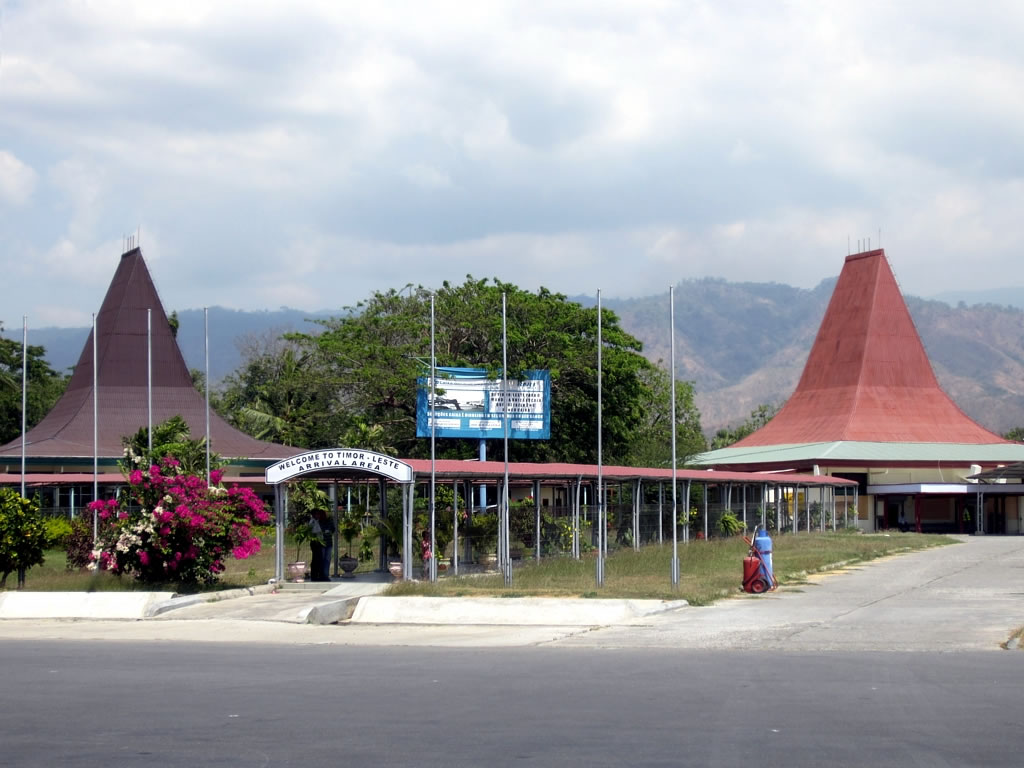
TA-9925 REG: Southeast Asia Transport Project Preparatory Facility Phase 2 - Airport Project Preparation (TIM) (52084-002)
Timore-Leste
Technical Assistance
17/03/2020
Asian Development Bank (ADB) has prepared a Regional Transaction Technical Assistance Facility (TA Facility): Southeast Asia Transport Project Preparatory Facility Phase 2 for preparation support and capacity building to a series of ensuing investment projects in Southeast Asian developing member countries including Timor-Leste. Meanwhile, the Government of Timor-Leste requested ADB to support in preparation of upgrading the Dili International Airport (Project) in a view for ADB to provide a loan to implement such Project.
The purpose of the consulting services is to conduct a feasibility study of the Project and to improve the readiness of the project implementation for the approval of the ADB loan in 2021. The Consultant is required to (i) help ADB in confirming technical option of runway extension, (ii) prepare basic engineering designs, (iii) conduct ADB’s due diligence in technical, economic and financial, governance, poverty, social, and gender in coordination with social safeguards team and climate change expert to be hired separately, (iv) support executing/implementing agency to prepare environmental safeguards documents in coordination with a biodiversity specialist to be hired separately, and (iv) prepare other required due diligence documents.
The following are the proposed infrastructure facilities for study:
- Extension of the existing runway up to Stage 1: 2,100m, Stage 2: 2,500m, then Stage 3: 3,000m including Runway End Safety Area (RESA);
- Taxiways;
- Air Traffic Control Tower (ATCT);
- Apron; and
- Other ancillary facilities including an approach lighting system.
Project vacancies related to this shortlist
International Positions:
Team Leader / Airport Engineer
National Positions:
Duration and Timing of the Services
It is expected that the Consultant will be appointed and commence its services in Q2 2020. The assignment is expected to be completed in 12 months from the date of issuance of the Notice to Proceed under the Contract. However, delivery of the feasibility study shall be completed in 8 months from the date of issuance of the Notice to Proceed.
Scope of Services (Tasks and Deliverables)
The Consultant will provide services for the following three outputs of the TA Facility as to the Project:
- Output 1: Feasibility study on ensuing project prepared. The Consultant support to prepare investment project for potential ADB financing. Detailed
activities will include: (i) feasibility studies required for processing the ensuing investment project; (ii) economic analysis; (iii) financial managementassessment, financial evaluation and financial analyses; (iv) Strategic Procurement Planning (SPP) including procurement capacity assessment, contract packaging and preparation of procurement plans, preparation of bidding documents; (v) risk assessment and management plans; (vi) safeguards documents on environment, incorporate inputs from social safeguards consultants on involuntary resettlement, and indigenous peoples; (vii) incorporate inputs from climate change expert on climate adaptation measures and climate risk and vulnerability assessment; (viii) gender analysis, collection of baseline data, and gender action plans; and (ix) transport sector assessment. - Output 2: Project implementation activities supported. Upon a receipt of the agencies’ request, the support will be provided to assist preparation and execution of a bidding process, including responding to queries from potential bidders during a bidding period, issuing addendum/corrigendum to bidding documents, bid opening and bid evaluation, and awarding the contract. Similarly, the support will be available for consultant recruitment process, design refining process, and studies to address specialized technical, institutional, and policy issues.
- Output 3: Technical and project management capacity of the executing and implementing agencies improved. The Consultant will provide support to improve execution agencies’ and implementing agencies’ technical and project management capacity with (i) on-the-job training through their daily work with counterparts, and (ii) training and workshops by inviting the counterparts associated with specialized common technical issues. Topics shall cover ADB’s policies, modalities, and procedures and project design and implementation.

Technical Assistance for the Capacity Building of KGM for the Road Infrastructure Safety Management in Turkey - EuropeAid/140089/IH/SER/TR
Turkey
Technical Assistance
26/02/2020
The aim of the contract is to harmonise Turkish legislation with Directive 2008/96/EC and enhancing the administrative capacity at the General Directorate of Highways (KGM) to implement road infrastructure safety management.
To provide an important contribution to the overall objective of the MAAP-T. The interventions foreseen within this Operation will facilitate the achievement of the Specific Result 3 (Improved Safety in Transport) of the MAAP-T under Action 1 – Sustainable and Safe Transport. It will also support the Action 4 – Acquis Alignment and EU Integration.
Shortly the followings are required for the harmonization and implementation. Analysis of current situation, institutional capacity building, establishing institutional structuring, identifying necessary legislative amendments, preparing draft legislations and guidelines, organizing training programmes as well as training of master trainers, preparing handbooks for road safety impact assessment, road safety audit, road safety inspection and network safety management, reviewing similar applications in Europe, application-oriented case studies within Turkey’s road network, preparing a model training programme for implementation groups and providing necessary trainings.
Project vacancies related to this shortlist
The Contract shall be based on; but not necessarily be limited to
- Preparation of the required legislation, guidelines and other relevant documents.
- Revision of design manuals of KGM and preparation of handbooks.
- Capacity Building Activities of KGM
Maximum budget: EUR 2.344.410,00
Partner: Mott MacDonald
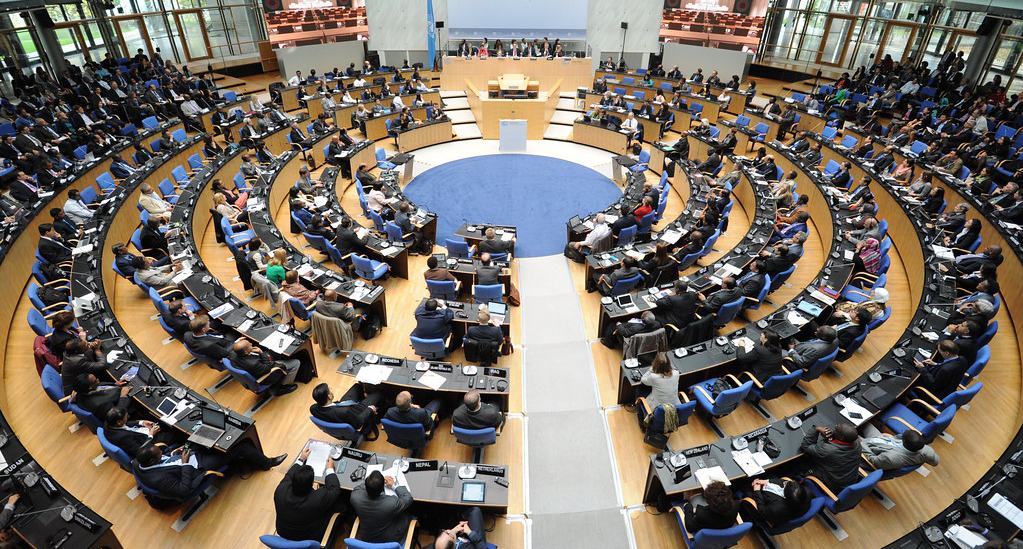
IPA – Assistance for the Implementation of Technical Assistance and Information Exchange (TAIEX) Activities: Provision of Logistical Services and Financial Management - EuropeAid/140471/DH/SER/Multi
Globally
Logistics
24/02/2020
Technical Assistance and Information Exchange (TAIEX) is centrally managed under the responsibility of the Commission's Directorate-General Neighbourhood and Enlargement Negotiations (DG NEAR).
TAIEX provides short term technical assistance for institution building, in particular in the field of approximation, application and enforcement of the Union acquis and related issues, as well as for the promotion of democratic principles, fundamental rights and the rule of law. In this context, TAIEX also supports exchanges of best practices and of innovative ideas. TAIEX is largely demand driven but it can also be triggered by Commission services, EU Delegations and EEAS. It draws on Member States’ administrations and institutions, which provide crucial input by making experts available who share their knowledge and expertise with the administrations and institutions of the beneficiaries. During the period 1 July 2018 – 30 June 2019 TAIEX organised 1 069 events.
TAIEX events include workshops (including multi-beneficiary workshops), expert missions (including peer-review and Twinning review missions and acquis explanatory meetings), study visits and work from home. The Contracting Authority acts as the source and is solely responsible for the planning, definition of content and supervision of these events. This includes the decision on the organisation of an event, its format, the agenda, the identification of experts and final list of participants, the decision on dates, the location, the use of interpretation, etc.
The implementation of TAIEX activities is shared between the Contracting Authority and the Contractor. The latter assumes full responsibility for correctly carrying out the logistical part of the organisation of TAIEX events and related payments to be executed. The key tool to obtain guidance for this is the MoP which defines the roles of the Contracting Authority and of the Contractor in the preparation and the delivery of TAIEX events. However, as the Manual of Procedures does not cover every possible detail of TAIEX operations and is not intended to constitute an exhaustive, nor an exclusive overview of all applicable rules, regulations and practices, the Contracting Authority provides clarification on a regular day-to-day basis.
The final recipients of TAIEX assistance comprise public and semi-public sector bodies such as national administrations, the judiciary, parliaments, regional and local administrations, representatives of trade unions and employers’ associations and civil society organisations, in the event that they play a role in the transposition, implementation and enforcement of specific EU legislation.
Project vacancies related to this shortlist
Overall objective of the project:
To provide logistical support for TAIEX events in a timely and efficient manner and thereby support the TAIEX beneficiaries in building and extending their administrative capacity.
Purpose:
The purposes of this contract is as follows:
- Providing logistical means for TAIEX events, with particular emphasis on goods and services with a reduced environmental impact throughout their life cycle when compared to goods, services; as well as on value for money;
- Ensuring related execution of payments.
Results to be achieved by the contractor:
- Result 1: Logistical support to TAIEX events is organised timely and cost effectively and TAIEX events are implemented smoothly, up to professional standards and to the satisfaction of the Contracting Authority.
- Result 2: Adequate visibility of the events organised is ensured.
- Result 3: Payments in relation to TAIEX events are executed transparently, economically, reliably and timely and services and supplies related to TAIEX events are purchased, contracted and managed efficiently and effectively in accordance with the contractual provisions.
Scope of the work:
The work to be performed under this contract relates to the logistical services and financial management of TAIEX activities. The respective tasks are divided between the Contracting Authority and the Contractor as set out in the Manual of Procedures. The Contracting Authority acts as the source of planning and definition of content and supervision of activities. The decision making on selection of experts, approval of final list of participants and the setting of the agenda of events, is the sole responsibility of the Contracting Authority.
Location and start date
The Contractor may choose the location of its operational base. The Contractor must ensure adequate operational capacity to facilitate implementation of the TAIEX events in the beneficiaries' territories. The Contractor's key experts have to participate in the regular, i.e. in principle fortnightly, management meetings with IBU in the premises of the Commission, DG NEAR (Brussels). Meetings can be in a form of a video conference.
The intended start date is 1st August 2020 and the period of implementation of the contract will be 24 months from this date.
Budget: EUR 32,500,000.00

Rural Development through Improved Rural Transport in Mozambique (Promove Transporte) - EuropeAid/140345/IH/SER/MZ
Mozambique
Technical Assistance/Capacity Building
12/02/2020
The purpose of the contract is to assist the National Authorising Officer (NAO), the National Road Administration (ANE), and the Road Fund at central and provincial levels in ensuring (i) the strengthening of national policies and institutional capacity for the management of rural roads, (ii) the establishment of improved rural road asset management systems, and (iii) the efficient administration of the road works contracts funded by the EU under the Milange-Mocuba corridor upgrading project and PROMOVE Transporte. The contractor will also assist the European Union Delegation in Mozambique with their oversight of these projects.
The contractor will provide long term experts and will assist ANE to establish a Resource Centre, which will organise the identification, recruitment and implementation of additional expertise (e.g. through short-term experts and training service providers) as required.
The project will promote a holistic approach to road asset management which addresses all aspects of asset management necessary to achieve sustainable road preservation. These aspects include:
- Appropriate changes to national policies and institutional responsibilities for road asset management to ensure the attainment of the NAO/EUD road sector project development objectives and their long-term sustainability;
- Advocacy at national level for sustainable financing of rural road maintenance;
- Efficient organisational arrangements for road asset management with clear lines of responsibility and effective stakeholder engagement;
- Appropriate road management systems at provincial level for road inventories, condition monitoring and transparent prioritisation of works;
- Participation of local communities (including women) and local contractors in road maintenance; and
- Development of improved contracting arrangements for road maintenance to ensure efficiency including appropriate technical specifications and quality control.
In addition, the TA contractor will support ANE in the administration and supervision of road works contracts funded under the 11th EDF to ensure timely completion of the works to the required standards and within budget. The road works will include upgrading of gravel roads to low volume sealed road standard, periodic maintenance of paved and unpaved roads, and the establishment of area based rural road maintenance. The TA contractor will assist NAO, ANE and EUD to resolve outstanding issues on works and supervision contracts funded under the 10th EDF in the Milange-Mocuba corridor.
Budget: EUR 3,000,000.00
Duration: 54 months
Partner: APPLUS NORCONTROL S.L.U.
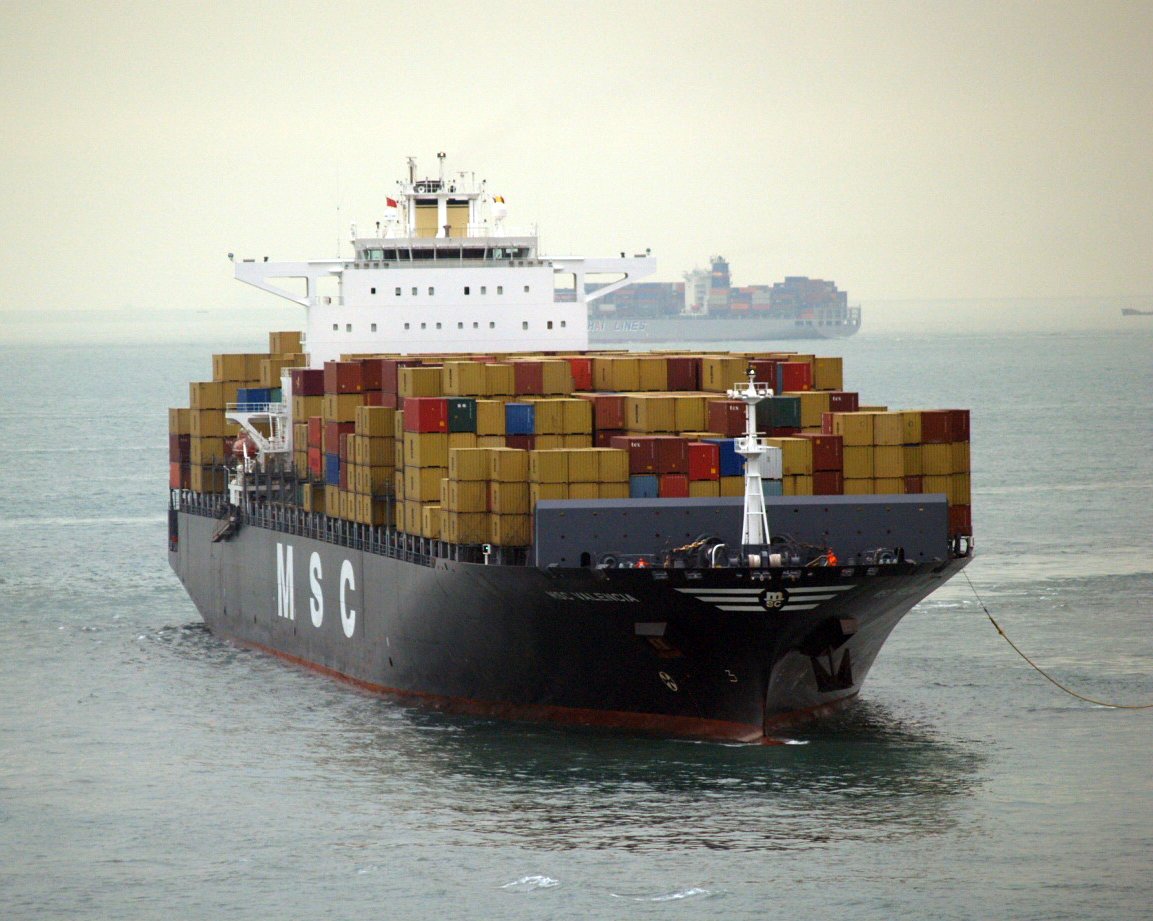
Maritime Cooperation in SASEC: Study on Port Logistics and Hinterland Connectivity.
Advancing Cooperation in the Maritime Sector in South Asia Subregional Economic Cooperation Program - KSTA REG 53175-001
South Asia
Study
27/01/2020
Strategically located within one of the world’s fastest growing trade and economic territories, South Asia boasts of vast resource advantages and huge industrial potential. The South Asia Subregional Economic Cooperation (SASEC), the region’s major geopolitical and economic grouping, is fully aware of its geographic advantages as well as the need to boost its competitiveness and uplift the economic condition of its members.
Efficient ports with sound port infrastructure and reliable services help boost economic growth by facilitating trade, transport and mobility. It is thus imperative for SASEC to fully utilize its maritime resources to enhance the region’s value chains and spark a surge in its economic growth. ADB is supporting the initiative to advance cooperation in the maritime sector in SASEC, focusing on addressing common issues adversely impacting on the performance of the subregion’s ports. A preliminary report has emphasised the importance of growing coorpration and investment in the maritime sector. It has identified challenges that need to be addressed including limited inland transport and port infrastructure adversely impacting on hinterland logistics. Underdeveloped infrastructure to support port operations includes a lock of “last mile” dedicated port access roads and a shortage of supporting inland container depots and container freight stations. The absence of such infrastructure remains a major bottleneck to reducing terminal dwell time.
Scope of Services
The study will focus on the assessment of the core issues pertaining to the port logistics and hinterland connectivity impacting the maritime sector. It will involve assessment of container trade in ports identified in the Maritime Cooperation in SASEC report, namely, Tuticorin, Katupalli, Chennai, Krishnapatnam, Kakinada, Vishakhapatnam, Paradip, Haldia and Kolkata in India; Chittagong, Mongla, Pyra, and Matarbari in Bangladesh; Male in Maldives; Yangon, Thilawa, and Sittwe in Myanmar; and Colombo, Hambantota, and Trincomalee in Sri Lanka.
The study will comprehensively cover the following areas:
Task A: As-Is Assessment and Benchmarking
- Port performance and port logistics
- Trade logistics
- Transport connectivity
Task B: Solution Identification
- Port performance and port logistics
- Trade logistics
- Transport connectivity
Task C: Implementation Roadmap
Task D: Regulatory Framework and Institutional Capacity Building
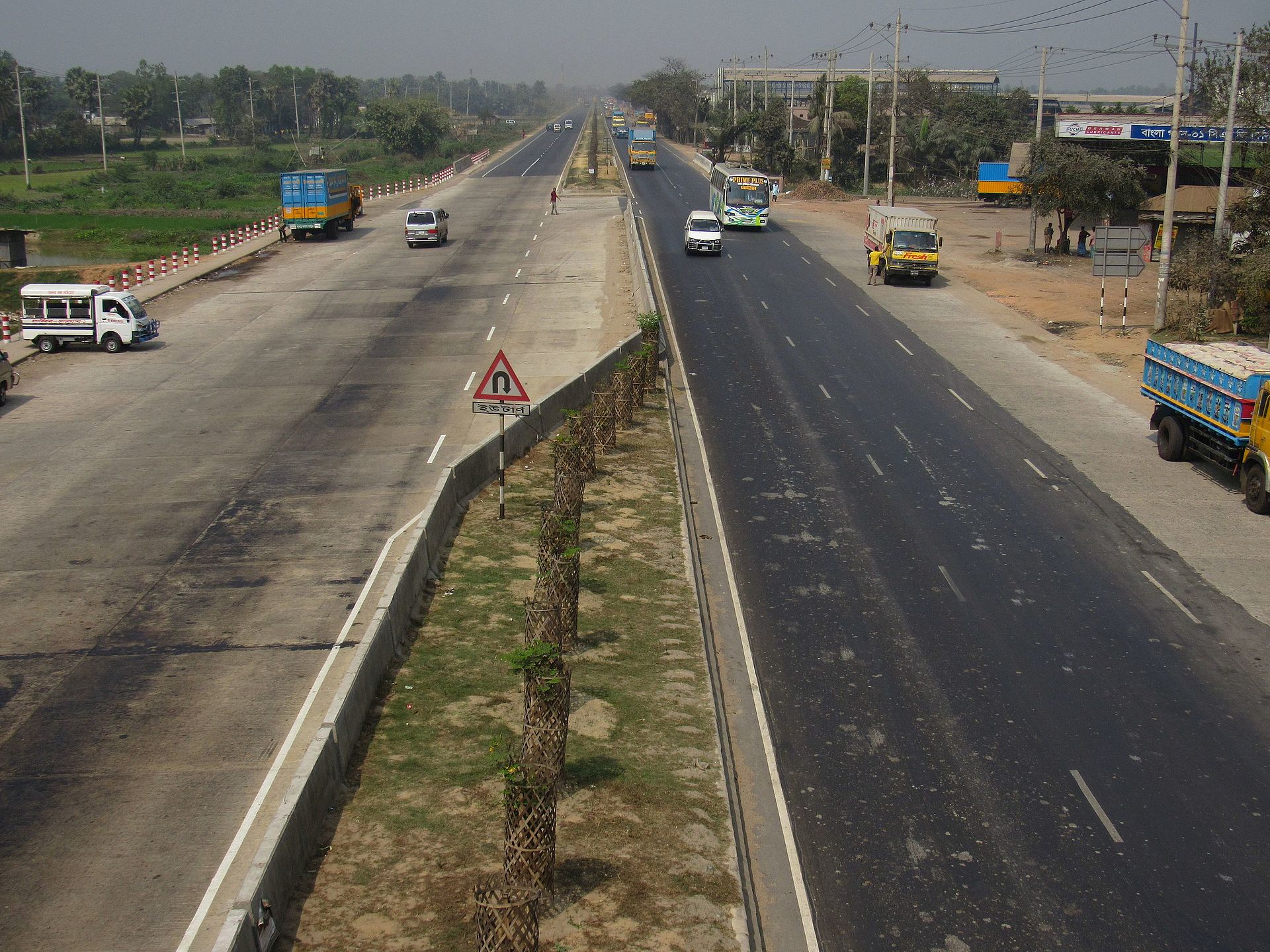
Strengthening Project Preparation Capacity in Asia and the Pacific - Support for Ongoing Monitoring and Project Restructuring (Subproject 2) - #1 (BAN) Technical Monitoring Firm (49407-003) - TA-9290 REG
Bangladesh
Technical Assistance
16/01/2020
The Government of Bangladesh is receiving Technical Assistance from the Asia Pacific Project Preparation Facility for the development and implementation of monitoring procedures for the Dhaka Bypass PPP project and more generally for Road PPPs in the country.
Dhaka Bypass road is a 2-lane road and part of the strategically important National Highway N105 and Asian Highway (AH41). It is a key arterial route which connects the northern and north-eastern part of the country with the southern and eastern region by-passing Dhaka city. An estimated 10,000 motorized vehicles use the Dhaka Bypass road on a daily basis and the numbers are continuing to increase. Consequently, the existing 2-lane road cannot cater for such increased traffic and there is a need to separate out local traffic from the trans-regional traffic and create a dedicated expressway to cater for the increase in traffic demand and to reduce journey time.
The objective of the project is to provide an alternate route for road users with a higher value of time (for example, freight traffic) and a requirement for high level of travel time reliability in National Highway N105. The upgrading of the road will also enhance the connectivity of the road network to meet forecast economic and traffic growth targets.
Project vacancies related to this shortlist
Overall objective of the project
The main objectives of the Consultant’s assignment are to:
a) Assist the Client in developing a monitoring manual for Dhaka Bypass;
b) Assist the Client in developing a general monitoring manual for all other road PPP projects in Bangladesh based on the Dhaka Bypass template; and,
c) Assist the Client on monitoring Dhaka Bypass project from Financial Close until first year of operation.
Duration: 46 months

MODERNISATION DU RESEAU ROUTIER A MADAGASCAR, TA2017165 MG IF3
Madagascar
Technical Assistance
13/01/2020
82% of Madagascar's population of 23 million people lives below the poverty line. The last political crisis of 2009 which lasted five years had a very severe impact on the socio-economic development of the country. During this period, Official Development Aid was suspended, the state budget has been greatly reduced and economic activity has slowed. These circumstances have resulted in deterioration of the country's roads with severe lack of maintenance. Between 2009 and 2013, the resources for the national Road Maintenance Fund (FER) have fallen by 66%. The main consequences have been extension of travel time, an increase in transport costs, a reduction in access to basic social services, a increase in road accidents as well as the isolation of certain regions which have become inaccessible.
The weakening of the country's resources, in the face of the urgent needs, makes it necessary for the assistance of the international community. The EIB and the European Union are therefore planning a vast program to rehabilitate priority roads through a co-financing system.
Project vacancies related to this shortlist
Overall objective of the project
The overall objective of the operation is to ensure, through these periodic audits and the final evaluation, that the implementation of the Project from the technical, administrative, environmental and social point of view, etc. complies with contractual documents and international best practices.
Objectives of the TA operation
The objectives of this technical assistance contract are as follows:
- To ensure the proper implementation of the resettlement plans, the ESMP, the proper functioning of the structures in place for the implementation of the project as well as the quality of the works and services performed;
- Inform donors whether or not stakeholders are fulfilling their obligations in relation to loan and grant agreements;
- Ensure that the promoter carries out the project in accordance with national and international standards while respecting the requirements linked to EIB financing;
- Carry out the final evaluation of the project by verifying that the indicators provided for in the contracts have been achieved.
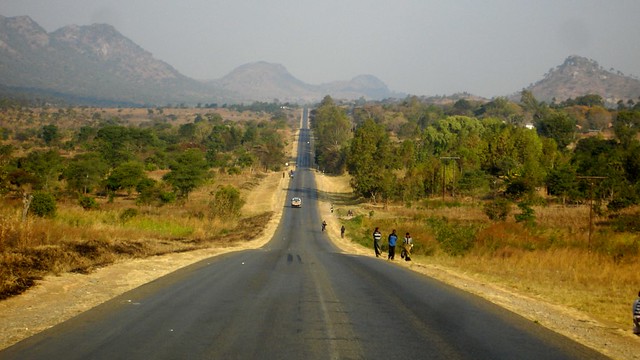
Project Implementation Consultant to the Great North Road (T2) Upgrade Project, AA-000679-001
Zambia
Technical Assistance
06/09 2019
The Great North Road (T2) Upgrade Project consists of the upgrade of about 372 km of the Great North Road (GNR) (T2) from Mpika to Nakonde in the Muchinga Province in North-Eastern Zambia. The T2 is one of the six international trunk roads connecting Zambia with the neighbouring countries of Tanzania and Zimbabwe, which is part of the Southern Africa Development Community (SADC)’s North-South Corridor (NSC), the Common Market for Eastern and Southern Africa (COMESA)’s Dar Tazara Corridor and the Trans-Africa Highway and it is a major regional transport corridor carrying significant international cargo and bulk commodities. The project is a national priority for Zambia and has also been prioritized by a Tripartite consisting of COMESA, SADC and East African Community (EAC). It is to be co-financed with the African Development Bank (AfDB), the Africa Growing Together Fund (AGTF) and the European Union (EU) through a blending mechanism, including a significant grant allocation from the African Investment Facility (AfIF). The Project is expected to improve road safety on the rehabilitated sections and to contribute to poverty reduction in the area by promoting socio-economic development.
Project vacancies related to this shortlist
Key expert 2: Environmentalist
Overall objective of the project
The overall objective of the project is to improve the availability, quality, safety and resilience to climate change on the concerned road section, as well as providing safe conditions for traffic combinations between motorized vehicles, un-motorized vehicles and pedestrians.
Objectives of the TA operation
The objectives of this technical assistance contract are as follows:
- Assist Road Development Agency (RDA) in fulfilling its obligations under the EIB loan and relevant grant agreements;
- Assist RDA’s Project Implementation Team (PIT) with all activities including all procurement and contract management required for effective implementation of the Great North Road between Mpika and Chinsali;
- Assist RDA in the implementation of the Environmental and Social Management Plan (ESMP) the Stakeholder Engagement Plan (SEP) and the Resettlement Action Plan (RAP);
- Assist RDA in the sensitization of project area inhabitants on communicable diseases environmental protection and support of gender mainstreaming activities;
- Assist RDA with implementing road safety education and awareness programs in communities along the project alignment.
Purpose
The purpose of this Technical Assistance contract is in line with the national sectorial strategies and long-term objectives and commitment of the GRZ to improve the national road infrastructure. It envisages the coordination of the review of the detailed design, including engineering drawings and undertaking of road safety audits throughout the tender period. The Technical Assistance aims at achieving its objective by providing the necessary assistance to the RDA to ensure the timely completion of the civil works, support and knowledge-sharing in the process, respecting the timing for commencement of the road upgrading works and ensuring delivery of well-prepared documents in this regard.

Consultancy Firm to Support the Delivery and Coordination of Urban Development and Affordable Housing Programs Under the Integrated Project Delivery Unit (IPDU)
Kenya
Technical Assistance
06-09-2019
The Government’s overall response to Kenya’s urban development challenge is articulated in the National Urban Development Policy (NUDP). The NUDP, approved by the Cabinet in 2016, intends to contribute towards the realization of the broader development goals articulated in Vision 2030 by addressing the key challenge of urban development. The State Department of Housing, Urban Development, and Public Works (the “State Department” or “SDHUD”) has designed the Kenya Urban Program (KenUP), as a vehicle to implement the NUDP. The overall objective of the NUDP is to provide a framework for sustainable urban development in Kenya by pursuing nine specific objectives: (a) create mechanisms for vibrant economic growth and development in urban areas and cities, (b) build efficient financial management systems in urban areas and cities, (c) develop effective governance structures for sustainable urbanization in the country, (d) reform urban planning to drive sustainable urban development in the country, (e) ensure access to land of the right quality for urban development, (f) promote city-wide environmental planning and management as well as climate change adaptation in urban areas and cities, (g) promote the development of requisite infrastructure and services in urban areas and cities, (h) support the development of affordable housing of acceptable quality in urban areas and cities, and, (i) mainstream urban safety and disaster risk management in urban planning and development.
Project vacancy related to this shortlist
Finance – Fund Management Lead
Technical – Project Management Lead
Technical – Environment and Social Safeguards Lead
Objectives of the Assignment
The overall purpose of this will be to support the State Department of Housing, Urban Development, and Public Works in its programs and initiatives in programs implementation coordination and backstopping, and resources mobilization. The Consultant will promote and support programs and projects by: (i) providing analytical and technical advice on options for financing and resource mobilization, especially through joint ventures and other private sector participation modalities; and (ii) collaboratively harnessing the talents and insights of all participants to optimize the programs’ and projects’ results, reduce waste, and maximize efficiency.

Further support to implementation of EU Ukraine Association Agreement in transport sector and of the National Transport Strategy in Ukraine EuropeAid/140022/DH/SER/UA
Europe (non-EU) Ukraine
Technical Assistance
31-05-2019
Ukraine’s transport sector with its complex infrastructure of multiple sea and river port facilities, far reaching railway network and extensive roadway systems secures the infrastructure for businesses to provide services and goods, secures export logistics and citizens’ accessibility to employment, services and education.
The transport sector is important in Ukraine’s economy and hence efficiency improvements are particularly important to raising competitiveness. The country generates far more transport movements and volumes relative to its GDP than any other country in Europe due notably to its reliance on agriculture and heavy industry. This implies that transport costs make up a much larger part of the final price of many goods. Transport infrastructure is in many parts of the country outdated and in urgent need of investment, and the transport sector as a whole needs profound reforms and modernization. The transport system has substantial potential to improve aggregate productivity and regional competitiveness. In order to utilize this potential and further develop and modernize the transport sector in Ukraine, there is a need to increase sector efficiency in line with International and European standards deploying strengths, opportunities, addressing needs and infrastructure and operational challenges facing the country.
Overall objective
To effectively raise Ukrainian public authorities' capacities in designing and implementing key reforms stemming from the Association Agreement and DCFTA, including capacity to carry out legal approximation process with the EU.
Purpose
The proposed project is fully in line with the EU-Ukraine-EU Association Agreement priorities. The objective of the project is to contribute to the further development and reform of the transport sector in Ukraine through regulatory convergence across transport modes and capacity building.
Specific project's objectives are:
- to reinforce EU-Ukraine cooperation by addressing the priorities of the EU-Ukraine Association Agreement as to enhance regulatory convergence across transport modes;
- to improve the capacity of the national authorities to adopt, implement and enforce the legislation aligned with EU transport legislation as part of the AA;
- to contribute to the achievement of the national transport strategy objectives and priorities in Ukraine and thus contribute to the sustainable development;
- to improve road safety conditions in the country in line with EU Policies and global strategies in order to diminish casualties and losses in road crashes;
- to improve logistics capacity, connectivity and interoperability of different transport modes in Ukraine.
Results to be achieved
The following results are expected at the end of the technical assistance:
- Adoption and implementation of the AA obligations in transport sector
- Institutional capacity of the national authorities is improved for better implementation and enforcement of the new legislation aligned with the EU legislation
- The respective know-how and European best practice is introduced and implemented in Ukrainian transport institutions to improve their performance, taking into account the organisational, managerial, technical and other issues relevant to the sector performance
- Further implementation of the NTS 2030
- Road safety strategy and action plan 2021- 2030 approved and in implementation
- Improved institutional capacity for road safety for better implementation of strategies and enhanced enforcement
- Improved logistics legal framework
- Public relations, communication and advocacy capacity is improved

Technical Assistance for Capacity Support to the Transport Sector and EU Acquis Alignment in Montenegro
EuropeAid/140039/IH/SER/ME / 9
Montenegro
Technical Assistance
02-05-2019
Montenegro has been receiving financial assistance from the EU since 1998. The implementation of pre-accession assistance programmes for the period 2007-2013 were managed by the EU Delegation in Podgorica with the exception of the Operational Programmes for "Regional Development" and "Human Resources Development" 2012-2013, which were managed via decentralised management by Montenegro. Currently the country receives the assistance through the Instrument for Pre-Accession Assistance (IPA II) for the financial period 2014-2020. The sector approach, an overarching principle of IPA II, seeks to embed EU financial support into the sectoral strategic framework of the beneficiary country.
Regulation related to IPA II states that financial assistance shall mainly address five policy areas: a) reforms in preparation for Union membership and related institution-and capacity-building, b) socio-economic and regional development, c) employment, social policies, education, promotion of gender equality, and human resources development, d) agriculture and rural development, and e) regional and territorial cooperation.
The overall objective under the transport sector of IPA II support is to improve the inter-connection of Montenegro with its neighbours, in line with the Connectivity Agenda, and support the alignment with the EU acquis under chapter 14 and 21 of the accession negotiations.
An important element of IPA II contributing to the overall objective is the technical and expert assistance aimed at building institutional capacity and supporting efficient enforcement of the EU acquis, and in the longer term preparing the country for usage of structural and cohesion funds after accession.
Project vacancy related to this shortlist
Capacity buidling & organizational review senior expert (K2)
Capacity buidling & organizational review senior expert (KE3)
Overall objective
The overall objective of the project of which these services will be a part, are as follows:
To contribute to achieve progress in the EU Integration process of the Montenegrin government within the transport sector by
- ) Ensuring alignment of the national legislation with the EU transport acquis and
- ) Increasing the capacities for its implementation.
Purpose
The purposes of this contract are as follows:
- ) Supporting the drafting of National Legislation and Strategies aligned with the EU Acquis for Transport and
- ) Supporting the increase of the planning and management capacities of the institutions involved with the implementation of transport policies and projects.
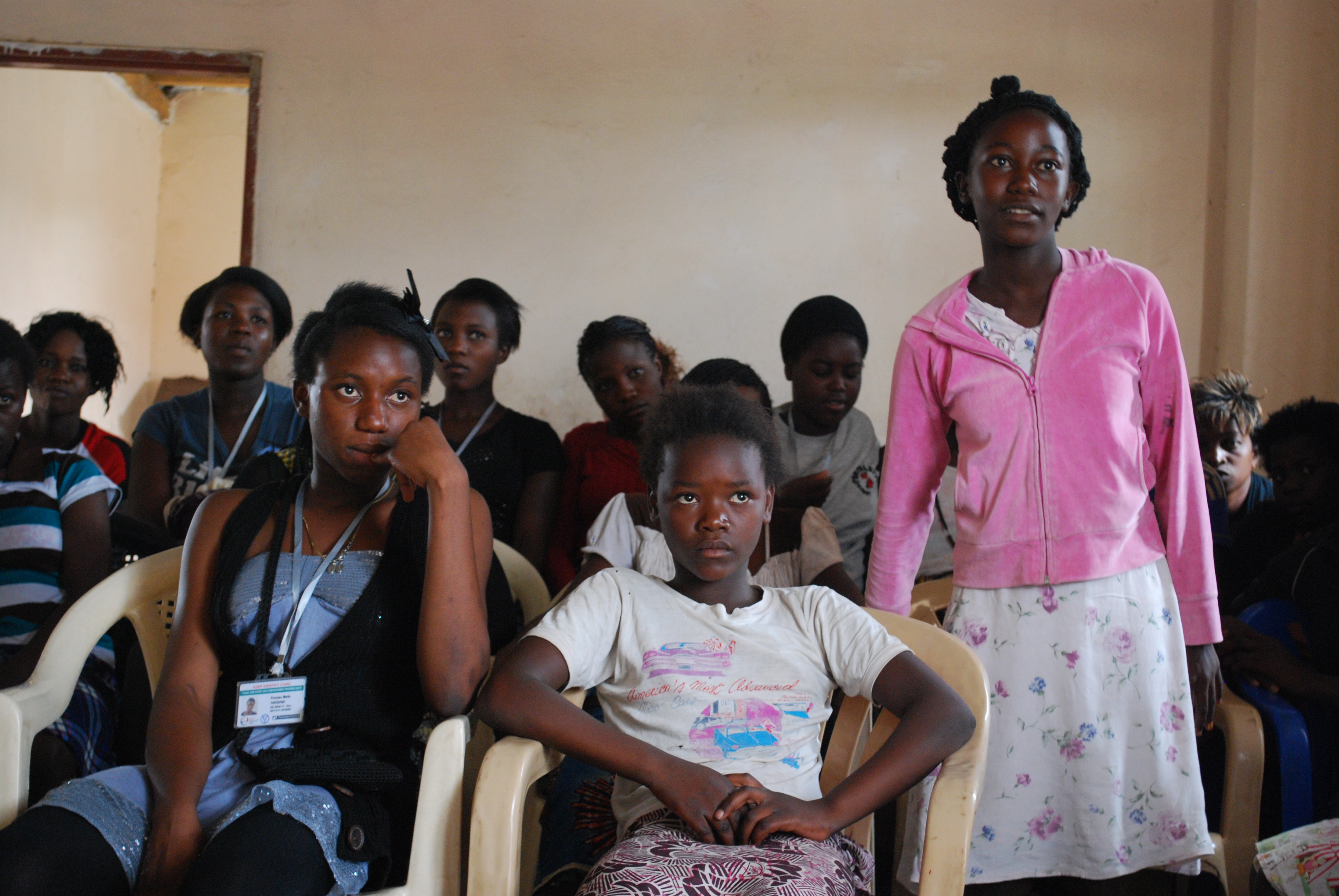
Support to the Zambian Government to Strengthen its Institutional Capacity and Multi-Sectoral Coordination Concerning Sexual and Gender-Based Violence (SGBV)
EuropeAid/139623/IH/SER/ZM
Zambia
Technical Assistance
29-04-2019
Sexual and Gender-Based Violence (SGBV) is a huge societal problem in Zambia as demonstrated by data from the 2013/2014 Zambian Demographic and Health Survey (ZDHS) and the 2015 Zambia Health and Wellbeing Survey.
The 2013/2014 ZDHS reports:
- 43% of Zambian women (age 15-49) have ever experienced physical violence since age 15, with current or former husbands/ partners as the main perpetrators of physical, emotional and sexual violence.
- 47% of women and 33% of men agreeing that a husband is justified in beating his wife;
- From all women who had experienced any type of physical or sexual violence, only 43% of women sought help to stop the violence, 9% never sought help but told someone; and 42% did not seek help and never told anyone.
- Where help was sought, SGBV survivors most frequently sought help from their own family (69%) or from the husband or partner's family (43.2%), whilst formal structures of support were hardly approached for help (e.g. police – 7.8%; medical staff – 1.5%; social work – 2.2%).
- 45% of Zambian women aged 25-49 were married by the age of 18 and close to 10% by the age of 15. SGBV can also lead to teenage pregnancies.
The 2015 Zambia Health and Wellbeing Survey reports:
- 50% of young people age 18-24 had witnessed physical violence in the home prior to the age of 18 – signalling that the normalisation of violence happens at a young age in the household, leading to entrenchment of its acceptability in adulthood.
- 40.1% of young men age 18-21 had experienced physical violence prior to age 18, but only 4.3% received support.
Project vacancy related to this shortlist
Overall objective
The overall objective of the SGBV programme of which this contract is a part is: to reduce Sexual and Gender-Based Violence in Zambia.
The specific objectives of the SGBV Programme, including this TA Project are:
- To prevent Sexual and Gender-Based Violence (SGBV) by challenging and changing beliefs, attitudes and practices in the target areas (SO1);
- To increase SGBV survivors' access and use of comprehensive support services (SO2).
Purpose
The purpose of this TA project is as follows:
- Purpose 1: Enabling environment – Strengthen the institutional and policy capacities of the Zambian Government for SGBV prevention and service delivery to SGBV survivors.
- Purpose 2: Enabling environment – Strengthen the multi-sectoral coordinated response of the Zambian government with regards to SGBV prevention and service delivery to SGBV survivors.
Results to be achieved by the Contractor
- Result 1: The institutional and policy capacities of the Zambian Government is strengthened to realize a multi-sectoral and coordinated response to SGBV prevention and service delivery to SGBV survivors is further strengthened.
- Result 2: The multi-sectoral coordinated response of the Zambian Government with regards to SGBV prevention and service delivery to SGBV survivors is strengthened.

Policy Support Facility for the Implementation of EU Foreign Policy - PSF 2019 Worldwide
EuropeAid/139974/DH/SER/MULTI
Worldwide
Technical Assistance
24-04-2019
The FWC Lot 2 ‘Technical Assistance’ will provide technical inputs and assist in carrying out analysis, studies and providing opinions and advice, including legal advice, in the form of feasibility studies, technical reports, baseline and benchmarking relevant for the policy dialogues, as well as monitoring and evaluation and related training. The Framework Contract has a global scope. However, it is expected that the majority of the specific contracts under this FWC Lot 2 will take place in industrialised and other high-income or middle-income countries and territories outside the EU. The Framework Contract will cover a wide range of sectors, such as:
- environment, natural resources, biodiversity and sustainable water management;
- raw materials;
- energy;
- climate change;
- smart, sustainable and green growth;
- research, development and innovation;
- industry and SMEs;
- regulatory cooperation and standards harmonisation;
- employment and social policy;
- education and training;
- judicial cooperation;
- migration and mobility;
- foreign policy/security;
- disinformation and societal resilience;
- health and consumer safety;
- digital;
- economic and financial affairs;
- transport;
- governance, human rights and democracy;
- maritime policy;
- culture and creativity;
- tourism;
- citizens’ rights.
Overall objective
The objective of the FWC Lot 2 is to provide, via individual assignments defined and contracted through specific contracts, expertise, technical assistance, and which can be mobilised at very short notice to carry out assignments such as:
- Analytical studies (e.g. feasibility studies, institutional/stakeholder analysis, political and economic analysis, intervention logic and logical framework approach/theory of change, economic analysis, data collection and analysis). This will also include mainstreaming of crosscutting issues (climate change, environment, resilience, youth, gender, disabilities and more broadly rights based approach), analysis of legislation, regulations and law enforcement, legislative gap analysis;
- Policy-related analysis and design;
- Monitoring and evaluation and related training.

EU Global Technical Assistance Facility (TAF) for sustainable energy EuropeAid/139956/DH/SER/MULTI
Worldwide
Technical Assistance
24-04-2019
The “Technical Assistance Facility for sustainable energy” project will have a global focus and will deploy its activities in all DCI eligible countries and the EU Neighbourhood. Addressing the lack of access to affordable, reliable and sustainable energy is one of the most critical development challenges, and prominently figures in the agenda for the fight against poverty. At the same time, renewable energy generation and energy efficiency are the two most important components of the Climate Change policy. The crucial role of sustainable energy for social and economic development has been translated at a global level by the inclusion of a dedicated Sustainable Development Goal (SDG 7) in the 2030 Agenda for Sustainable Development adopted in 2015: “ensure access to affordable, reliable, sustainable and modern energy for all by 2030”.
Reaching the goal of global access through sustainable solutions is also expected to mitigate the worst impacts of climate change most affecting the poor. Sustainable energy is central to inclusive and equitable economic growth towards poverty eradication, inter alia through the creation of new job opportunities for all. The energy sector accounts for two thirds of CO₂ emissions, therefore, ensuring access to sustainable energy for all (SDG 7) is the key to achieve the international climate targets. At the same time, access to sustainable energy contributes to the sustainable development of cities (SDG 11).
Project vacancies related to this shortlist
Team leader and sustainable energy expert
Expert in policies and the institutional and regulatory framework (1)
Expert in policies and the institutional and regulatory framework (2)
Expert in rural electrification and electrification of islands or energy islands
Power engineer and expert in electricity utilities
Overall objective
The overall objective of this contract is to contribute to establishing the necessary conditions for achieving the SDG 7 goals in sustainable energy and possible interlinkages with other SDGs. It will as well contribute to the SDG 13 goals related to climate action in Development Cooperation Instrument eligible countries with a focus on Sub-Saharan Africa.
Purpose
The purpose of the contract is to deliver high level technical assistance and policy advice at country, regional and global level through expert missions that will be mobilised at short notice to support committed countries and partners to reach the SDG7 objectives. It will support developing countries to improve their policy and regulatory framework conditions aiming at providing attractive and enabling conditions for increased public and private investment in energy access, renewable energy as well as energy efficiency taking into account climate change, gender and health impacts especially under the framework of the EIP.
Results to be achieved by the Contractor
The Contractor will be responsible for the swift and professional development and implementation of technical assistance packages that will vary across the countries and regions. It will implement a high quality and highly visible technical assistance facility bearing the mark of the EU that will be involved in most of the EU-funded projects in the energy sector. It will be responsible for maintaining a high-quality service and for delivering the expected results.
Each mission, group of missions and task will define its own specific deliverables, expected results and outcomes. The non-exhaustive list of results to which the contract is aiming is as follows:
- Support to energy sector reforms and capacities including sector governance, planning and regulatory improvement
- Support to mobilisation of investments in the sector
- Knowledge management, dissemination and cross-fertilisation of sustainable energy regulatory, technical and investment practices and between stakeholders is increased
- Support to reinforced partnerships

Results Oriented Monitoring (ROM) system for external aid interventions financed by the European Union (Lot 1) - Ref. Ares(2019)2432799
Asia and Pacific, Latin America and Caribbean
Results Oriented Monitoring
09-04-2019
The ROM system is the external monitoring system of the European Commission. It aims at enhancing the European Commission's (EC) accountability and management capacities with a strong focus on results and supports EU Delegation and Headquarter services by providing an external opinion on project implementation. The system was set up in 2001 and was substantially reformed in 2015. The reform aimed at improving the quality of ROM reviews through 1) systematic use of specialised thematic and sector expertise, 2) more days to be spent in the field, 3) the introduction of a robust external Quality Assurance system (QA). Finally, the reform introduced ROM missions aimed at supporting EUDs and HQ services in their results reporting tasks. Since 2015, the ROM system has been implemented through several service contracts covering interventions implemented by both DG DEVCO and DG NEAR (European Neighbourhood Instrument only).
Lot 1 covers EU-funded national and regional interventions whether single or multi-country in:
• Asia and Pacific,
• Latin America and Caribbean, and
• Intervention funded under horizontal and thematic instruments and managed by Thematic Directorates in DEVCO HQ.
It covers interventions financed by the European Development Fund (EDF) and the general budget of the European Union.
Budget: 11.350.000 EUR
Duration: 12 months
Project vacancies related to this shortlist
Key Expert 1: Team Leader (Senior Expert)
Overall objective
The overall objective of the contract is as follows:
To improve the performance of EU-funded interventions by strengthening design, monitoring and evaluation systems at intervention and institutional level.
Purpose
The purposes of this contract are as follows:
- Purpose 1: to provide an external, objective and impartial assessment on the performance of selected ongoing DEVCO interventions.
- Purpose 2: to provide technical support to EC services in the formulation of intervention logics and related logical framework matrices (logframes) as well as in the design of
monitoring and reporting systems at intervention level. - Purpose 3: to support results reporting at institutional and intervention level
Results to be achieved by the Contractor
- ROM reviews are performed on time, in line with the prevailing rules and meet the quality standards detailed in the ROM Handbook.
- Project documents subject to quality assurance have an intervention logic which is coherent with the corresponding ADs and contain measurable indicators, baselines, targets, and sources of verification.
- Intervention-level monitoring and reporting systems subject to quality assurance allow measuring the performance of the intervention as well as reporting on results.
- Results data is quality-checked on time, and follows the standards detailed in the ROM Handbook.
- Monitoring and results data is available for use during evaluations at all levels.
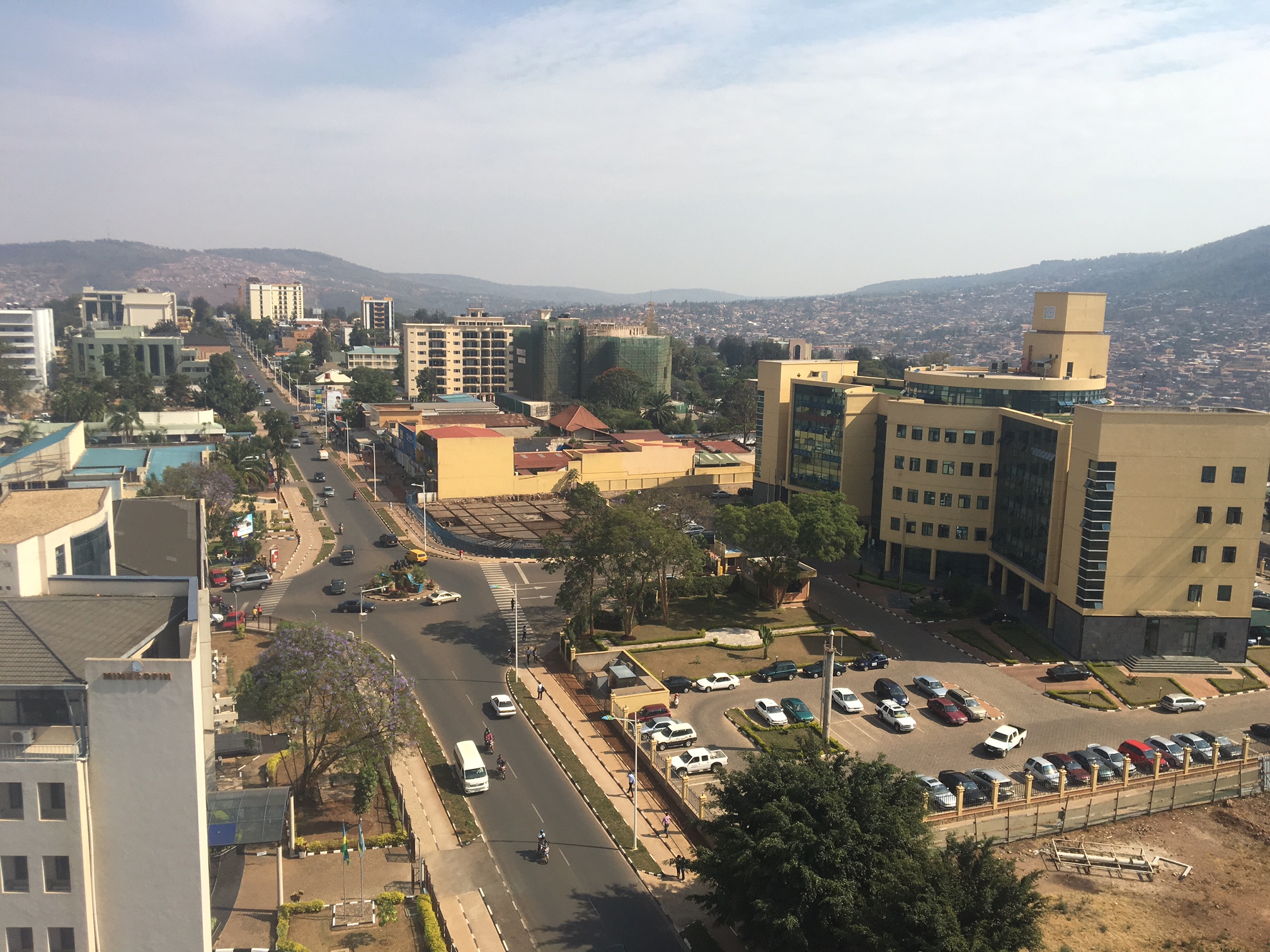
Results Oriented Monitoring (ROM) system for external aid interventions financed by the European Union (Lot 2) - Ref. Ares(2019)2432832
Sub-Saharan Africa
Results Oriented Monitoring
09-04-2019
The ROM system is the external monitoring system of the European Commission. It aims at enhancing the European Commission's (EC) accountability and management capacities with a strong focus on results and supports EU Delegation and Headquarter services by providing an external opinion on project implementation. The system was set up in 2001 and was substantially reformed in 2015. The reform aimed at improving the quality of ROM reviews through 1) systematic use of specialised thematic and sector expertise, 2) more days to be spent in the field, 3) the introduction of a robust external Quality Assurance system (QA). Finally, the reform introduced ROM missions aimed at supporting EUDs and HQ services in their results reporting tasks. Since 2015, the ROM system has been implemented through several service contracts covering interventions implemented by both DG DEVCO and DG NEAR (European Neighbourhood Instrument only).
Lot 2 covers EU-funded national and regional interventions whether single or multi-country in the sub-Saharan African region including intra-ACP (Africa, Caribbean and Pacific) and pan-African programmes.
Budget: 17.000.000 EUR
Duration: 24 months
Project vacancies related to this shortlist
Key Expert 1: Team Leader (Senior Expert)
Overall objective
The overall objective of the contract is as follows:
To improve the performance of EU-funded interventions by strengthening design, monitoring and evaluation systems at intervention and institutional level.
Purpose
The purposes of this contract are as follows:
- Purpose 1: to provide an external, objective and impartial assessment on the performance of selected ongoing DEVCO interventions.
- Purpose 2: to provide technical support to EC services in the formulation of intervention logics and related logical framework matrices (logframes) as well as in the design of
monitoring and reporting systems at intervention level. - Purpose 3: to support results reporting at institutional and intervention level
Results to be achieved by the Contractor
- ROM reviews are performed on time, in line with the prevailing rules and meet the quality standards detailed in the ROM Handbook.
- Project documents subject to quality assurance have an intervention logic which is coherent with the corresponding ADs and contain measurable indicators, baselines, targets, and sources of verification.
- Intervention-level monitoring and reporting systems subject to quality assurance allow measuring the performance of the intervention as well as reporting on results.
- Results data is quality-checked on time, and follows the standards detailed in the ROM Handbook.
- Monitoring and results data is available for use during evaluations at all levels.

Technical Assistance to the Ministry of Transport for the creation of an Investment Unit - TA2018112 EG DTF
Egypt
Technical Assistance/ Capacity Building
13-03-2019
Egypt’s economic situation has improved markedly following the flotation of the EGP and a number of drastic reform measures. The Ministry of Transport (MoT) stated its vision as “relying on transport as a catalyst for national economic growth and promoting Egypt as a global trading hub”. In order to successful ensure this vision is achieved, The Ministry of Transport, with help from EIB, is developing an Investment Unit within the MoT.
Project vacancies related to this shortlist
Senior Engineer / Procurement Expert
Senior Economist / Financial Specialist
Overall objective
The overall objective of this Technical Assistance (TA) will be to efficiently and pragmatically kick-start an Investment Unit within the Ministry of Transport (MoT). This objective will include organizing staffing, setting up operating procedures, defining a medium-term action plan – including identifying potential projects – and following up implementation of pilot projects (at least one).
It is important to note that the Consultant is held responsible for putting forward a proposal that it considers as presenting the best methodology and description of tasks in order to achieve the above-mentioned objective. These terms of reference are therefore kept as general as possible with the intent to leave the Consultant maximum freedom in organizing its team and work.
Purpose
The purposes of this TA assignment are as follows:
- Agree the overall setup with MoT international cooperation advisor, offering several development options based on international experience and case studies. The overall setup includes, but is not limited to, the elaboration of a mission statement, vision, a development strategy and an organizational setup. Benchmarking with similar units internationally and advising on optimal structure & expertise will be required.
- Set up the Investment Unit staffing, starting with his or her Vice-Team Leader (to be appointed by the MoT), whose aim will be to replace the Consultant / Team Leader as head of the Investment Unit at the end of the assignment. Assist preparing procedures to develop human resources.
- Start the preparation and develop business tools for the planning and prioritisation of investments with the head of section in charge. This should include preparing detailed operating procedures and determining the type of financing (notably public versus private).
- Organize and provide a training and capacity-building programme, including hands-on training and formal training.
- Develop performance indicators and monitor progress / develop a dashboard for the Minister.
Results to be achieved by the Service Provider
Within the duration of the assignment, the Consultant will provide the MoT with:
- A mission statement, vision and strategy of the MoT;
- An approved structure of investment unit within the MoT;
- Identification of the functions of the investment unit and its organizational structure;
- Job description and criteria for selecting candidates for the investment unit;
- a prioritized list of projects as an investment pipeline – short and long term – working closely with the MOT counterparts and relevant stakeholders;
- Capacity building programme, especially for project preparation and planning;
- Training modules and material;
- Tools necessary to plan and prioritize investment programmes;
- Communication strategy and Promotional tools to attract public, IFI and/or private financing; and
- Internal and external communication tools / dashboards.
The Consultant in charge of the TA will be the Team Leader and will be acting as temporary head of the Investment Unit for the duration of this Technical Assistance.
By the end of his/her mission, the Team Leader should be replaced by his/her second in charge or Vice Team Leader, who will be appointed by the MoT. This Vice Team Leader will become the Head of the Investment Unit at the end of this Technical Assistance Operation.
Similarly, all key and non-key experts mobilised under this TA will be replaced by full-time MoT staff to ensure sustainability of the MoT Investment Unit mission.
By the end of the assignment, the Investment Unit should have the competencies to achieve the following objectives:
- Communicate the MoT’s strategy to relevant stakeholders and potential investors.
- Establish and maintain project pipeline with a prioritized list of projects, based on ministry and country level development plans and while liaising with other line ministries – especially Ministry of Investment & international Cooperation and the Ministry of Planning.
- Attract and facilitate potential projects with investors and international partners, especially EIB.
- Identify and screen projects and prepare them in according to standards to EIB and other IFI’s.
- Determine the best financing options for the project (especially if the project should be financed by the public or the private sector)
- Prepare finance requests, project progress reports and disbursement requests
- Provide a hub of information for transportation projects available for investment and coordinate information exchange between stakeholders
- Support authorities under MoT in obtaining access to finance, as well as technical assistance, from EIB and other IFIs and support in preparing project briefs with sufficient level of project information for project scoping / pre-appraisal.
- Monitor and report on project selection, preparation and implementation
- Establish compliance measures according to EIB standards and other IFIs
- Develop an effective and transparent public communication channel – enhancement of MoT website to publish projects pipeline and status
- Establish transparent and effective reporting tools
- Ensure crosscutting coordination within transportation sub-sector.
- Conduct appropriate business models for investment.

Institutional Strengthening for Road Safety - TA-9579 MON
Mongolia
Technical Assistance
14-02-2019
The primary mode of transportation in Mongolia is through an expansive but poorly maintained road network. In 2016, reported road crashes were the fifth leading cause of deaths in the country. More
than 75% of recorded deaths are outside Ulaanbaatar where post-crash response is lacking, drunk driving is twice as common, and the likelihood of seat belt use is 50% lower than in the capital. The vehicle fleet in Mongolia more than doubled during 2011-2016, and the number of reported crashes also increased from 21,302 to 46,712. Road crash deaths and injuries are likely to increase markedly over the coming decades as vehicle ownership continues to grow in Mongolia, thereby affecting medium- and long-term growth prospects by removing adults from the workforce and reducing the productivity of injured workers.
Overall Objective
The knowledge and support technical assistance (TA) will support the Government of Mongolia in institutional strengthening and capacity building in road safety to facilitate implementation of the road safety policy and action plan developed under the previous TA for Development of Road Safety Policy and Action Plan.
ADB and the successful consulting firm will support Mongolia in institutional strengthening for road safety through:
- Output 1: Road safety management capacity improved. Output 1 will provide specialized training for road safety staff. It will also develop road safety education materials for schools and design and
implement a campaign on the use of child restraints. - Output 2: Crash analysis capacity improved. This output will support relevant staff in pilot-testing an independent crash investigation body in Mongolia and in analyzing crash scenes and crash data.
- Output 3: Recommendations and revisions of national road safety guidelines and manuals developed. Output 3 will review international best practices, existing documents, and implementation of the guidelines by analyzing the current guiding documents related to road safety to identify gaps or areas for revision.
Scope
The minimum scope of works are:
- Road safety management capacity improved
- Crash analysis capacity improved
- Recommendations and revisions of national road safety guidelines and manuals developed

Technical Assistance for implementation support to the Ukraine Urban Road Safety Project TA2018082 UA NIF
Ukraine
Technical Assistance
29-01-2019
With support from The European Investment Bank, Ukraine has set a strategy for improving the country’s overall urban road network. Transport is critical to Ukraine’s economic development since its economy is highly transport intensive due to the large role of agriculture and heavy industries. In addition, Ukraine is an important transit country for bulk traffic. The Ukrainian economy generates far more transport movements and volumes relative to its GDP than other countries in Europe. Ukraine’s strategic geographic location puts it on the main routes of international cargo traffic, leading to significant EU interest in Ukrainian transit and transport potential. Several international corridors cross the territory of Ukraine (both along North-South and East-West directions), carrying freight to/from neighbouring countries (EU Member States) and for countries further away (Caucasus, Central Asia). The country already has a very serious road safety problem with around 4,500 persons dying and 32,000 injured or crippled on Ukrainian roads each year. Around 44% of those killed are pedestrians, cyclists and other vulnerable road users - a higher percentage than occurs in any of the nearby 38 countries. Many of these deaths and injuries occur on the urban road and street networks
Overall objective
The overall objective of the Ukraine Urban Road Safety Project, which this TA task will be a part of, is to contribute to the National Transport Strategy 2030, the National Road Safety Strategy, and the Road Safety Program promoted by the Government of Ukraine. These national initiatives will in turn contribute to the United Nations Decade of Action for Road Safety and the Sustainable Development Goals for road safety worldwide.
The Urban Road Safety Project will achieve this through implementation of schemes related to urban road safety, better access to public transport and facilities for cycling and walking, and IT solutions for safe and effective traffic management.
Purpose
The purposes of this contract is as follows:
- To support effective implementation of the Ukraine Urban Road Safety Project
- To strengthen the capacity of relevant professionals to develop and implement appropriate road safety infrastructure schemes on urban roads in five cities in Ukraine (Kyiv, Lviv, Kharkiv, Odessa and Dnipro).
Scope
Road safety is a complex matter that is influenced by the physical environment and road conditions, the behaviour of road users, and legislative and law enforcement systems. As such, the Urban Road Safety Project will support a series of infrastructure and IT investments in the five participating cities, such as:
- Small public transport related infrastructure improvements
- Improvement of the most dangerous accident blackspots
- Intersection improvements
- Street renovations
- Safe cycle and pedestrian networks
For those interested in the positions related to this project - please upload your CV here

Preparing the Civil Aviation Investment Program - KSTA PNG 52201
Papua New Guinea
Technical Assistance
04-01-2019
NTU has been shortlisted for the project Preparing the Civil Aviation Investment Program, an Asian Development Bank project in Papua New Guinea which will help identifying policy actions and investment plans and strategies to achieve compliance with Civil Aviation Organization (ICAO) safety standards and enable equitable and affordable air transport services to the wider PNG population. The assignment is expected to contribute comprehensively to tackle the physical and non-physical bottlenecks in the sector in close coordination with other development partners.
The duration of this project is 12 months, and the intended commencement date is January 2019.
Overall objective
The overall objective of the project is to ensure a continuous development of both national, regional, and rural airports and airstrips, by providing the National Airports Corporation (NAC) with a list of investments, institutional development and capacity building proposals for subsequent ADB and other donors’ programmatic support.
NTU will be responsible for delivering the following tasks
- Policy and Institutional Reform Program
- Hub-and-Spoke System for connection of national, regional and rural airports and airstrips
- Outline engineering designs for 2 selected priority airports and 20 strategically selected rural landings strips
- Financial Analysis and Financial Management Assessment
- Economic Analysis and due diligence
- Environmental and Social Safeguards
- Poverty, Social and Gender Assessment and action plans
- Climate Risk and Vulnerability Assessment, including adaptation plans and climate resilience
- Risk Assessment and Management Plan
- Procurement Risk Assessment and Procurement Readiness plans and strategies for the program
- Capacity Needs Assessment of key stakeholders in the Civil Aviation Industry

TA2018003 Support to the Armenia Road Safety Improvement Project
Armenia
Technical Assistance/ Capacity Building
04-01-2019
NTU has been shortlisted for The Armenia Road Safety Improvement Project, a European Investment Bank project, which will help reduce the rate of accidents and injuries associated with road transport. In recent years, Armenia has made considerable efforts to improve safety on the roads and bringing down the number of accidents, with the ongoing IFI-financed projects focusing largely on safety and addressing several key accident black spots in the country. However, there is also a need for better coordination and management of road safety, much stricter traffic enforcement, better awareness of road users, and faster emergency response when accidents do happen. Thus, this overall purpose of this TA project will be to help support the capacity development of all relevant authorities and stakeholders.
The duration of this project is 15 months, and the intended commencement date is April 2019.
Overall objective
The overall objective of the project is to contribute to and support the efforts of the Government of Armenia to significantly (up to 20%) reduce the rate of accidents, injury, and death associated with road transport, through improvement of black spots and road safety management capacity development.
Purpose
The specific objective/purposes of the Technical Assistance operation are (i) ensuring proper quality of black spots improvement works; and (ii) supporting capacity development for relevant authorities and stakeholders with the aim of reaching international standards regarding road safety, thus contributing to the following:
- improving black spots on several roads of intense traffic;
- updating Armenian road design standards to reflect the EU and international best practice on road safety and increased focus on vulnerable road users;
- developing Road Safety Audit capacity in Armenia and better integration of Road Safety Audit in all EU supported road projects in line with the EU Directive 2008/96/EC on Road Infrastructure Safety Management (EU Directive 2008/96/EC);
- stronger capacity and processes within the MOTCIT (including its subsidiary entities Armenian Roads Directorate and Transport PIO) and Road Police to manage planning, design and operation of safer roads.
Results to be achieved by the Consultant
- existing detailed design and tender documents for the improvement of the black spots under Component II reviewed/updated as needed and tender documents elaborated;
- roads safety inspections (covering the MOTCIT administered interstate and republican roads of intense traffic and recorded safety issues) performed and additional black spots identified and prioritized for the improvement under Component IV;
- road safety audits, detailed designs and tender documents for the improvement of the black spots under Component III and Component IV elaborated;
- Technical Supervision carried out to ensure a strict compliance of the Components II, III and IV works with the contract and design documentation requirements;
- Review, recommendations and proposal for updated Armenia Road Design Standards based on the EU and international best practices and safe system approach, which can be used for official approval/adoption;
- existing Road Safety Audit Manual for Armenia updated to reflect the EU Directive 2008/96/EC;
- road safety auditors training provided to selected 40 Armenian road engineers, leading to certification of minimum 15 auditors in line with international standards and enabling them to conduct safety audits and inspections in line with the EU Directive 2008/96/EC;
- proposal for adjustment of the official Armenian planning and design procedures to allow for smooth integration of road safety requirements and Road Safety audit recommendations during planning, design and implementation.
- proposal for future road safety investments for the EIB/EU and other IFIs consideration
Further, the TA operation will
- Support and develop the activities and capacity building started under the EU funded TRACECA regional road safety project;
- Encourage and support the implementation of EU best practices in safety standards for roads, such as the EU Road Safety Directive 2008/96/EC;
- Review and elaborate design documentation for improvement of blackspots on republican and interstate roads of intense traffic;
- Ensure that road safety civil works are implemented in accordance with the provisions of the construction contract. The Consultant will take all engineering decisions required for the successful and timely implementation of the civil works contract.
- Improve capacity of Armenian road design engineers and road safety auditors, and improve practices in safety engineering for safer design construction and operation of roads;
- Identify sections on the national road network with high accident rates and prepare proposal for future road safety improvement projects on these, which can be funded by EIB/EU or other IFIs;
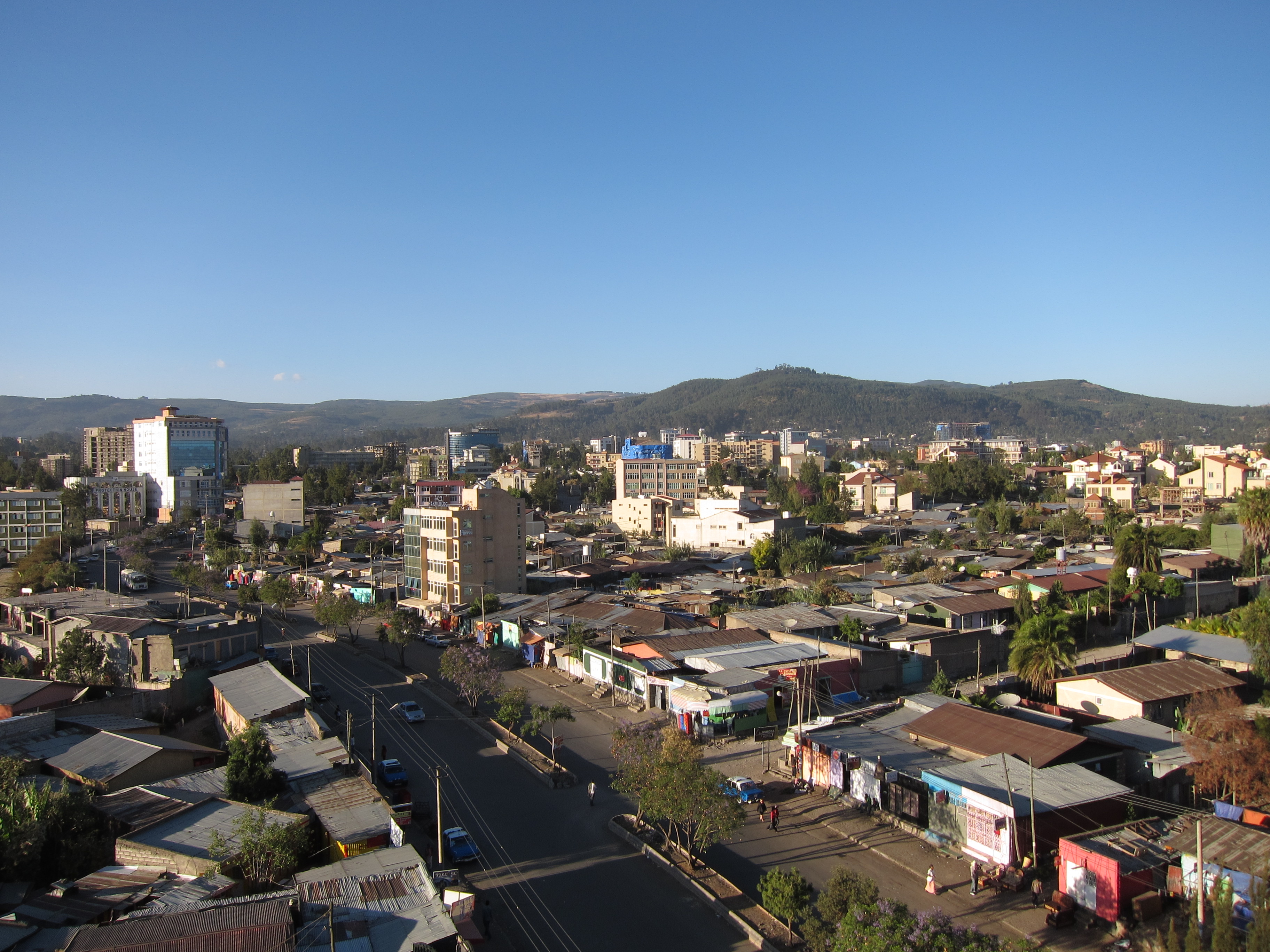
P148850IDA Consultancy Service for Piloting of Enhanced Enforcement of Road Safety and Post Crash Care
Ethiopia
Technical Assistance/ Capacity Building
12-12-2018
Ethiopia has been experiencing strong economic growth, and the Government of Ethiopia (GoE) has recognized that it needs to rapidly expand and improve the quality of the road network to allow for further economic growth and to reduce poverty. It has subsequently formulated a rolling Road Sector Development Program (RSDP) in partnership with development partners such as the World Bank, African Development Bank (AfDB), China EXIM Bank, European Union (EU) and others. The RSDP identified the investments needed to restore and expand the road network, and reforms to modernize the sector. The Expressway Development Support Project (EDSP), which aims to enhance efficiency and safety in the movement of goods and people along part of the Modjo-Hawassa development corridor is one of the projects that modernizes the network. The project, once complete, will help reduce transport costs for local fishery and agricultural products marketed by the rural and urban poor living along the project influence area. Part of the activities that will be supported under the project is to assess part of the core road network for acceptable road safety requirements.
Scope of the Service
The duration of the project is 48 months, and the scope of the service includes the piloting of enhanced enforcement of road safety and post impact care in the two corridors that will be identified by the road safety audit. The maximum length of each single corridor shall be 250km. The Consultant is required to base its approach on the Safe System Approach where road safety is addressed in a holistic way.
Overall objectives
The objectives of the Consultancy Service are to:
- demonstrate the value of well-coordinated and integrated road safety measures;
- achieve quick proven results and obtain benchmark performance measures to dimension a national rollout program;
- accelerate the transfer of road safety knowledge to the NRSC Secretariat, participating agencies and stakeholders; and,
- Improve cooperation between different road safety agencies including first responders, Health sector partners, and Local community and strengthening their capacity to undertake this type of work.
- Identify policy, institutional regulatory gaps.
Project Scope
The Project will embrace the following four main tasks to be undertaken along the two Pilot Corridors:
Task 1: Pilot enhanced enforcement of road safety regulations; to identify gaps or inadequacies in policy and regulatory tools. Evidence could be feedback to the authorities to optimize their policy and regulatory instruments.
Task 2: Pilot publicity and awareness campaign in support of traffic law enforcement
Task 3: Pilot monitoring and evaluation system;
Task 4: Improve Post-Impact Care (Trauma Care); and,
Task 1 and 2 should be undertaken together, with the interactive dynamics and level of complementarity whilst Task 4 is standalone and can be undertaken separately.
Task 3 involves the joint monitoring and evaluation of:
- enhanced enforcement (Task 1);
- publicity and awareness campaigns (Task 2);
- improvements to post-impact care (Task 4); and,
- Safety improvement works.
- Document enforcement instrument and the publicity and awareness campaigns.

EU for Serbia – Improving Road Safety, Republic of Serbia" – EuropeAid/139317/DH/SER/RS
Republic of Serbia
Technical Assistance
16-11-2018
The NTU led Consortium has been shortlisted for the project EU for Serbia – Improving Road Safety.
Serbia has a high number of annual road accidents, which has long effected the efficiency of the road sector. With support from EU, the country has now increased its efforts to combat some of the main issues faced by the national road sector. To improve the country’s traffic safety in a more efficient way, it is necessary to have institutional capacities with established procedures and relations between the institutions and organizations that make up the system of traffic safety. The Consultant will help strengthening the capacity of the road sector both nationally and locally. At national level it is very important to work on the recognition of institutions and organizations that make up the system of traffic safety, their field of action and responsibility in the field of traffic safety.
Objective
The overall objective of this project is as follows:
- Improvement of the quality, safety and capacity of the road transport network in the transport sector.
- Improve development of the South East Europe Core Regional Transport Network with special focus on traffic safety.
Purpose
The specific objective, and the overall purpose of this TA contract, is to improve of traffic safety at local and national level in the Republic of Serbia. At local level, the establishment of local councils for road safety, strengthening of their capacities, developing of professionalism and training of council members for doing the work in the councils, is needed. Local bodies for traffic safety are recognized in the Law on Road Traffic Safety of the Republic of Serbia as an important element of traffic safety in Serbia. Local bodies are obliged to adopt local road safety strategies and action plans, and it is very important to push them to establish the tools for traffic safety management as well as to establish and developing local road safety database for recognizing their problems and for their role as an independent road safety bodies.
Results to be achieved by the Consultant
The contractor will assist in establishing an effective system of traffic safety at local and national level in Serbia, supported by the legal framework that enables stabile financing of activities which is a prerequisite for the sustainability of the system. This needs to be done by developing and establishing software application which will communicate with local road safety databases that need to contain main sets of road safety data important for managing of road safety in one city or municipality.
Other results to be acheived:
Result 1: Improved capacity of traffic safety management at local communities of the Republic of Serbia.
Result 2: Establishing MAIS3+ scale of injury in traffic accidents and improved capacity of health emergency sector and traffic police for data exchange on injuries in traffic accidents.
Result 3: Improved road infrastructure management at national and local level and evaluation of state of road safety on state roads of the Republic of Serbia.

Economic Resilience Initiative— Infrastructure Technical Assistance (ERI-ITA) Southern Neighbourhood and Western Balkans - TA2017141 R0 ERI
Southern Neighbourhood and Western Balkans
Technical Assistance
01-10-2018
NTU has this week received notification from the EIB that the NTU Consortium has been shortlisted for a major project which will provide infrastructural technical assistance to the Southern Neighbourhood and Western Balkan states. This project is one of the cornerstones of the EIB’s development budget, with over 30,000 person-days envisioned over a 48-month period, and with a budget of up to Eur25,000,000. NTU as the lead member of a strong consortium of partners, will be able to lean on its extensive experience of delivering best in class services to the EIB, across a broad spectrum of sectors, ranging from Energy and the Environment, to Transport. The EIB is of growing strategic importance to NTU, with over 20 Individual Projects or Framework Contracts, either fully completed or currently under implementation. We here at NTU feel that these successful collaborations allow us to understand exactly what the EIB want in an implementing partner and will stand us in good stead when developing our technical proposal.
Economic Resilience Initiative (ERI)
Within the framework of the European Neighbourhood Policy (ENP), which sets out EU and EC policy and cooperation objectives for the relations with the Neighbourhood countries, and in response to a request by the European Council in March 2016 for EIB to present a specific initiative aiming to rapidly mobilise additional financing in support of growth, vital infrastructure and social cohesion in the Southern Neighbourhood and Western Balkans regions, the Bank developed the Economic Resilience Initiative (ERI). The Council endorsed the Initiative in June 2016 and the EIB Board approved it in October 2016 with the launch of the first components to step up EIB’s activity in the two regions.
The ERI is an integrated and substantial package of loans, concessional finance and innovative instruments to finance investments to upgrade and develop social and economic infrastructure and stimulate private sector-led growth and job creation. This major initiative is expected to result in an increase in EIB financing in the region by EUR 6bn over the 5-year period from October 2016 in addition to the EUR 7.5bn already envisaged prior to the initiative.
The ERI entails four components:
- an EIB contribution starting immediately to maximise support under existing frameworks;
- concessional finance to step up investments in vital public infrastructure;
- support to higher-risk operations for growth and impact finance, particularly in the private sector; and
- technical assistance and advisory services (TA&AS) to support the preparation and implementation of the initiative.
Project vacancies related to this shortlist
Team Leader / Southern Neighbourhood
Sectoral Project Manager - Environment
Sectoral Project Manager - Energy
Sectoral Project Manager - Transport
Objective
The project is intended to commence in February 2019 and will last 48 months. The overall objective of this ERI-ITA Contract is to contribute to the improvement of the infrastructure sectors in the ERI Partner Countries of the Southern Neighbourhood and Western Balkans.
Purpose
The purpose of this TA Contract is to support the identification, preparation and/or implementation of Investment Projects in the environment (predominantly water and sanitation), energy, transport, social infrastructure and digital economy sectors, and are expected to be part-financed by EIB through loans or a combination of grants and loans (Blending). Other sectors may also be included.
Technical Interventions
NTU as the lead member of a strong consortium of partners will contribute to the successful achievement of the results of individual ERI TA sub-assignments consisting of studies, analyses or services predominantly, but not exclusively, in infrastructure investments in the environment, energy, transport, social infrastructure and digital economy sectors and for services to the Beneficiaries.
Specific deliverables provided by NTU will include sector/baseline studies, pre-feasibility studies, feasibility studies and financial / economic analyses, environmental and social impact assessments, detailed designs, budget and financing plans, tender documents, and other technical assistance studies and services, for investment projects in the above sectors. Deliverables may also comprise the transfer of know-how in project development, project management and financing and reporting techniques to the Beneficiaries, to enhance expertise and skills of local human resources within government institutions, local authorities, municipalities, etc.
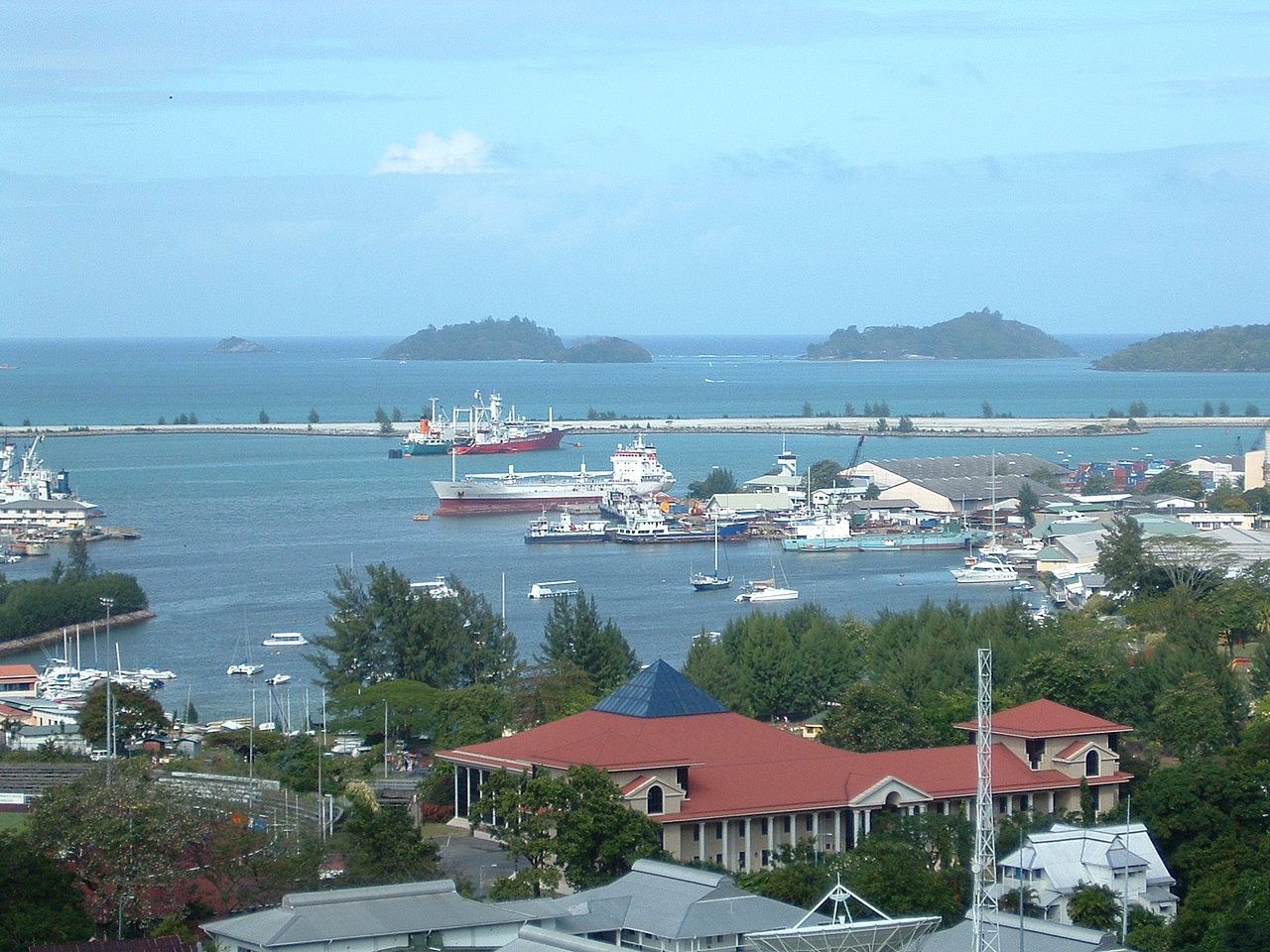
EIB - Preliminary studies & project design for Port Victoria Seychelles 2018/S 103-234517
Seychelles
Technical Assistance
28-09-2018
With the opening of Seychelles International Airport, tourism have become the primary industry and the demand for further transport infrastructure upgrade and modernisation has become a necessity. Consequently, in May 2015, the European Investment Bank (“EIB”) commissioned the elaboration of the Feasibility Study for the Rehabilitation and Extension of Port Victoria, Seychelles, which was finalized in March 2017. The TA operation was financed under the Cotonou agreement.
The project is estimated to kick start by January 2019 and the overall objective of this contract is the development of an economically efficient and modally complementary infrastructure in Port Victoria contributing to the socio-economic growth of the Seychelles.
Project vacancies related to this shortlist
Purpose
The purpose of this TA is to design a detailed project for rehabilitation and extension of the Commercial Port. This includes the building of a new quay wall of 600 m and related land reclamation and dredging as well as providing technical support to SPA for the procurement process for the works.
NTU will contribute to the achievement of the following results:
- Design Basis
- New Terminal Layout Concept include the following:
- Detailed Engineering Design of port structures, land reclamation, services & utilities and dredging areas;
- Dredging Management Plan;
- Review and update of the ESIA (Environmental and Social Impact Assesment) and draft of the ESMP (Environmental and Social Management Plan) including a Stakeholder Engagement Plan;
- Port Facility Security Plan according to ISPS – IMO requirements;
- Project Implementation Plan;
- Detailed Cost Estimate; and
- Tender Documents to procure the related construction contractors
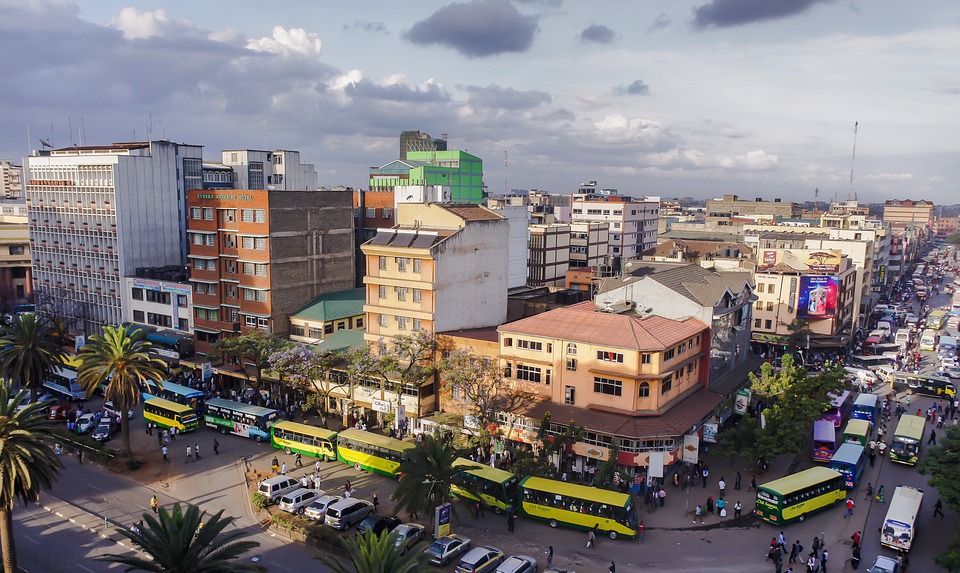
EuropeAid/137662/IH/SER/KE Institutional support to the Kenyan Transport Sector, Kenya
Kenya
Technical Assistance/ Capacity Building
24-09-2018
The overall objective of this assignment is to contribute to poverty reduction and accelerated and inclusive economic growth through more sustainable and efficient transport sectors (road, rail, maritime, air). This will be achieved through:
i. institutional support to improve the governance of the transport sector
ii. institutional support to improve technical skills in the transport sector
iii. institutional support in the urban mobility area
Kenya is the leading economy in the East African Region and has seen its GDP rate increased of 5,6% in 2015, with 6,4% of it being contributed by the transport sector; a number that is expected to increase further. In comparison with other countries in the region, the transport sector in
Kenya is relatively well developed in terms of both infrastructure and service and combines international quality operators and services. Local authorities recognize that changes need to be undertaken to maintain confidence, sustainable growth and poverty reduction. The Government of Kenya focus is on improving, promoting and sustaining efficient, affordable and effective transportation system including the whole East Africa and Great Lakes Region.
Project vacancies related to this shortlist
Transport Planning/Transport Impact Assessment Expert
Traffic Data Collection/Survey Expert
Organizational Structure and Staffing Expert
Expert in Maritime Skills / Curriculum / Institutional Development
Results to be achieved
- To develop more efficient and safe transport system for increased productivity
- Poverty reduction through economic growth
- Implementation of a Bus Rapid Transit System in Nairobi
- Improved road safety conditions
- Reduce negative impacts on environment and the climate
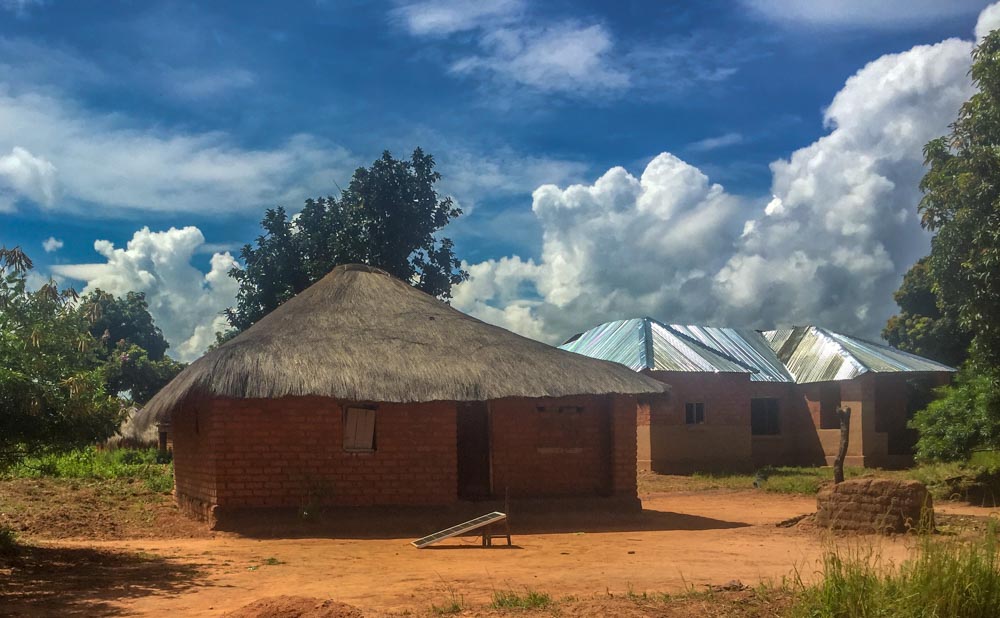
Consultancy to conduct feasibility Study for Scaling up the Strengthening of Climate Resilience to the Copperbelt and North-Western Provinces
Zambia
Technical Assistance/ Capacity Building
22-08-2018
The overall objectives of this assignment is; i) capacity building to help improve the knowledge of Government staff in the planning and design of the Pilot Program for Climate Resilience, and ii) to develop a feasibility study, which will inform the scaling up of climate resilience interventions to the Copperbelt and North-Western Provinces of Zambia.
Zambia’s climate is highly variable, with frequent droughts, seasonal and flash floods, extreme temperatures and dry spells. Floods and droughts have increased in frequency over the past three decades, costing the nation an estimated 0.4% in annual economic growth. These trends are expected to intensify in the future. Projected temperatures are expected to increase by 3-50C by 2100, with average precipitation declining during the early rainy season (October to December) and intensifying thereafter. In the absence of adaptation, rainfall variability alone could keep an additional 300,000 people below the poverty line over the next decade and reduce annual GDP growth by 0.9%. Climate change and variability are in turn affecting agriculture and natural resource productivity, thereby exacerbating poverty and contributing to decline in economic growth. On the basis of these observed climate trends, Zambia was one of the three countries in Africa selected for the Pilot Program for Climate Resilience (PPCR), which is funded by the Strategic Climate Fund (SCF) – a multi-donor Trust Fund under the Climate Investment Funds (CIFs).
Project vacancies related to this shortlist
Team Leader - Environmental Economist
Agricultural Specialist (Crop Production)
Agri-business / Agro-Processing / Value Chain Specialist
Results to be achieved
Feasibility study
- Review the experiences and lessons from the implementation of the Kafue sub-basin and Barotse Sub Basin pilot projects;
- Establish governance, institutional and technical management entry points to scale up increased adaptive capacity of communities to climate change in selected districts of the Copperbelt and North-western Provinces of Zambia.
- Identify strategic rural infrastructure with potential for climate proofing.
- Identify District and community capacity needs.
- Ascertain measures for management of climate risks through consultative processes.
- Develop a framework for stakeholder involvement in identification and implementation of interventions for climate resilience upscaling.
- Undertake detailed feasibility studies, technical designs, bills of quantities and tender documents for the scale up program on climate resilience and low carbon development in the Copperbelt and North Western Province.
Capacity Building
The capacity building shall help improve the knowledge of Government staff in the planning and design of the proposed Program.
- Two existing staff, specialized in either Environment or Climate Change or related field will be provided by Government selected from the Provincial Administrations of the Project sites as full-time counterpart staff to understudy the Consultant. The training of these counterpart staff will be on the job, based on specific pre-planned and agreed assignments geared towards improving their capacity. For planning purpose, the Consultant shall provide a detailed on-the-job training program for the counterpart staff at the beginning of each phase.
- The consultant will take all necessary effort to engage identified key stakeholders to support information gathering and identification of program interventions. Stakeholder engagement shall be initiated during Pre-feasibility Study phase with an initial (kick-off) national stakeholders’ workshop. Beyond this, the Consultant shall engage District and local level key stakeholders including the local Government offices, NGOs, Civil Society Organizations, traditional and political leaders to clarify Program details in order to incorporate indigenous knowledge. For formal consultations, the Government (Ministry of National Development Planning through the PPCR Project) shall organize national and provincial stakeholders’ workshops where the Consultant shall present the draft Program design, reports and drawings to the key stakeholders for their contributions and inputs.
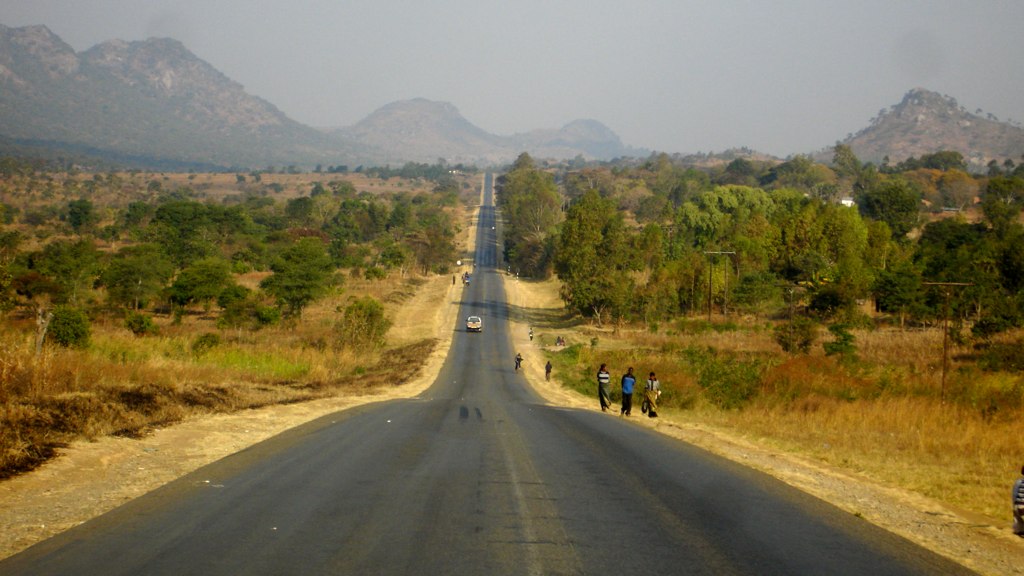
RFP No.: RDA/CS/OIS/008/018 - Nacala Road Development Project Phase IV (Mwami/Mchinji One-Stop Border Post)
Zambia
Technical Audit
14-08-2018
The overall objective of the project is to facilitate trade activities for both public and private sectors of the governments of Zambia and Malawi, together with neighbouring countries. As of now, several bottlenecks are hindering the free movement of people, goods and services, especially related to trade activities along the Nacala corridor. A One-Stop Border Post (OSBP) at the Mwami/Mchinji border will be build to improve this unfortunate situation. The OSBP will have two separate facilities one on either side of the international boundary line that require only one stop for vehicles and pedestrians in each direction.
Project vacancies related to this shortlist
Purpose
The aim of the OSBP project is to facilitate trade activities for public and private sectors of Zambia and Malawi. This will be achieved by providing a vital transport infrastructure along the corridor through:
(i) facilitation of easy access for intra and inter-regional trade;
(ii) facilitation of easy access to international markets through connectivity with major sea ports;
(iii) contribution to maximizing the operational efficiency along the corridor, and
(iv) promotion of social and economic integration, therefore, contributing to the betterment of the living standard for the general populace in the two countries and along the Nacala corridor.
Results to be achieved
- The cost of doing business will be significantly reduced as freight’s transit time will drop from current average of 17-days to only 8-days, from Lusaka to sea-port
- Aid for Trade initiative and its primary aim is to reduce the time, and cost of transport along the corridor.

ADB TA-9502 TIM: Baucau to Viqueque Highway Project - 001 Team (51115-001)
Timor-Leste
Technical Assistance
31-07-2018
The objective of this assignment is to develop an integrated national road network strategy and plan underpinned by policy instruments and institutional framework to effectively plan, execute, maintain and operate road sector assets in most efficient and cost-effective manner applying latest industry best practices.
Project vacancies related to this shortlist
Purpose
This project is to help the Government of Timor-Leste in fulfilling its key priority under the Strategic Development Plan (SDP) for 2011-2030 that aims to deliver a comprehensive road maintenance program, along with rehabilitation, upgrading of all existing roads and bridges, and establishing ring road national highway by 2030.
Result to be achieved
- Draft a comprenhensive national road network strategy and plan
- Road Subsector Assessment
- Investments and O&M Strategy
- Organizational Reform Plan and LOS
- Road Asset Management Plan
- DRBFC Operational Manual and Training
- Operational Plan for National Industry - Prepare a concept design for a sustainable road maintenance program
-Road Fund Policy Paper
-Concept Design of Maintenance Program

EuropeAid/138996/IH/SER/ME – IPA - Road safety assessment of Montenegro
Montenegro
Technical Assistance/ Capacity Building
27-07-2018
The purpose of the project is to undertake detailed road safety assessment on 1855 km of road network in Montenegro in line with Directives 2008/96 EC and 2004/54 EC, enhancing the country’s road safety network to deal with increased volumes of traffic on both trunk roads and regional roads. The project is carried out through the 2014-2020 IPA II and is well-aligned with the Transport Community Treaty (TCT) on the Development of the South East Core Regional Transport which was ratified in Montenegro in March 2018
Project vacancies related to this shortlist
Purpose
The overall objective of the project is to ensure effective enforcement of road safety legislation and to identify priority measures aimed at improving safety on the road network in Montenegro.
Results to be achieved
- Road Risk Maps, in accordance with iRAP methodology
- Road Star Rating, in accordance with iRAP methodology
- On-job training of the licensed institution for auditing road safety aspects
- Tracking road safety performance;
- Safer Road Investment Plan with prioritisation of urgent actions.

EuropeAid/139464/DH/SER/UA Assistance for Dnipro transport development
Ukraine
Technical Assistance/ Capacity Building
17-07-2018
The overall objective of the project will be to facilitate and promote the reform in the waterborne transport. This reform will be directly related to the obligations of the Article 367 of the AA to "promote efficient, effective and safe transport operations" and Annex XXXll to chapter 7 of the AA listing the relevant EU legislation to be implemented. The consultant shall help improve the legal and regulative framework required for reforming the IWW-subsector in relation to the Association Agreement. Contribute to the improvement and facilitation of the IWT subsector in MoI and the related institutions, building overall capacity with an aim to improve the safety, efficiency and effectiveness of IWT systems in Ukraine, creating the enabling environment in which the IWT industry operates in terms of the effectiveness of sector organization, the market freedoms which it permits, the regality constraints it imposes, and the responsiveness with which the government and MoI fulfil their functions.
Project vacancies related to this shortlist
Team Leader - Ukraine
IWW Institutional and Capacity Building Expert
IWW Logistics and Multimodal Expert
Purpose
To provide a comprehensive lWT facilitation plan for the Dnipro River, based on an assessment of the existing transport and freight supply/demand situation in Ukraine and an identification of all infrastructure, institutional, regulatory, environmental, safety and commercial challenges hindering IWT competitiveness.
Results to be achieved
- Ukrainian legal framework for Inland Waterways in compliance with the EU Acquis Communautaire, according to the Association Agreement between Ukraine and EU and with international conventions to which Ukraine is a party;
- Approved capacity-building plan, tailor-made for IWW sector institutions: Administrative capacity plan and corresponding application of procedures, job descriptions and necessary manuals;
- Approved set of documents regarding the IWT-promotion: Programme of promotion activities, organisational scheme of IWT-promotion and development structures. Approved and implemented short -term training plan and approved inspection guidelines and checklists;
- Established pilot information system for market observation;
- Capacity improvement of MoI and relevant bodies of Ukraine managing the IWT-system, through implementing a reliable, impatial, transparent and efficient organisation, management and maintenance of the IWW network in Ukraine, in compliance with the AA and the international conventions;
- Improved abilities of civil servants of the JWT-subsector to have full capacity for responding to the demanding process of reforming the entire system;
- Approved comprehensive Dnipro IWW Transport Development Plan;
- The progress on implementation of the obligations under the Association Agreement implementation is visible and promoted.

RFP No.: 08-2017 - Consulting Services to undertake performance reviews and develop turnaround strategies at Zimbabwe National Roads Administration
Zimbabwe
Technical Assistance/ Capacity Building
17-07-2018
The consultant shall analyze the internal governance structure, operational and financial management as well as the performance measurement system of the Zimbabwe National Roads Administration to assess and provide recommendations.
Purpose
Based on the findings of the Performance Review, the consultant shall come up with a comprehensive Reform Strategy for the ZINARA to guide on the strategic direction of the ZINARA and providing adequate measures to address the areas of improvement identified in the Performance Review.
Outputs to be delivered
- Report I: "Planning and preparatory work" (draft and final)
- Report II: "Analysis, Assessment and Recommendations" (draft and final)
- Reform Strategy (Draft and Final)
- One Stakeholder workshop
- One Briefing Session for main stakeholders (including aide memoire)
- One Debriefing Session for main stakeholders (including aide memoire)

EuropeAid/139433/DH/SER/UA Support to the State Aviation Administration of Ukraine in Reinforcing its Competencies in Air Operations (OPS) and Flight Crew Licensing (FCL)
Ukraine
Technical Assistance/ Capacity Building
28-06-2018
TA and capacity building tasks with focus on providing support for the sustainable development of civil aviation and the civil aviation administration system, harmonise regulations and working practices to comply with the requirements of the EU norms and standards in the field of aviation safety (OPS&FCL). The project has to facilitate preparation for the implementation of the respective provisions stemming from the CAA Agreement between the EU and Ukraine, the Working Arrangement (WA) between the State Aviation Administration of Ukraine (SAAU) and the European Aviation Safety Agency (EASA).
Project vacancies related to this shortlist
Purpose
The project purpose is to strengthen the regulation and supervision of OPS& FCL.
The purposes of this contract are as follows:
- To provide legal support to the SAAU to set up a solid legal ground for effective implementation of the relevant EU aviation regulations (EU standard, regulatory and procedural requirements) in Ukraine;
- In synergy with other on-going EU funded projects, to reinforce the SAAU structural institutional oversight capacity, specifically in the area of OPS&FCL;
- To reinforce cooperation with air operators and other relevant partners in the domain of OPS&FCL in line with EU standards.
Results to be achieved
- Priority relevant EU legislation, covered by the CAA Agreement, is transposed into Ukrainian legislation; the implementing regulations for the relevant OPS&FCL legislation are developed and implemented;
- The internal procedures, handbooks, checklists and guidance materials for the relevant Aviation Rules of Ukraine (ARU) are developed and ready for the SAAU approval;
- Institutional oversight capacity of the SAAU is strengthened and upgraded through appropriate measures (e.g. training, on-the job training, etc.);
- Cooperation with air operators is reinforced through some joint activities proposed by the project also for the industry; relevant information and knowledge are exchanged/ shared

EuropeAid/138806/DH/SER/AL: Capacity Building for Public Private Partnership (PPP) Management Skills Development in the Albanian Transport sector
Albania
Technical Assistance/ Capacity Building
21-06-2018
Technical Assistance task focused on the capacity building of MoIE/ARA necessary to implement of the road objectives exposed on the National Transport Strategy and Action Plan 2016-2020 for issues related to preparation, implementation and monitoring of PPP schemes on roads. Such schemes are expected to be used for completion of a comprehensive road network and to support operation and maintenance of the network in safe sustainable and competitive manner. These activities are aligned with the Specifics Tasks foreseen within the Priority Action 4 for Road Transport in the Transport Strategy.
Overall objective
The overall objective of the IPA 2016 Sector Reform Contract in which the services of this contract are included under complementary support is:
- To contribute to an efficient transport system, integrated in the region and in the EU network, which promotes economic development and the citizens’ quality of life by focusing on the road transport.
Purpose
The purpose of the contract is as follows:
- To improve the capacities of the Ministry of Transport and Infrastructure (MoIE) and Albanian Roads Authority (ARA) by providing Technical Assistance service for developing skills and legislative framework concerning Private Public Partnership financing methods in the road transport infrastructure construction, operation and maintenance.
Results to be achieved
- The MoIE/ARA staffs are trained in the fundamental country advantages that differentiate infrastructure concession from other types of public administration contracts, and in the range of public-private sector infrastructure management contracts.
- MoIE/ARA staffs are trained to in the full process of awarding a concession and PPP contracts on roads including identification of potential projects, evaluation process and contract preparation as well as contract monitoring implementation.
